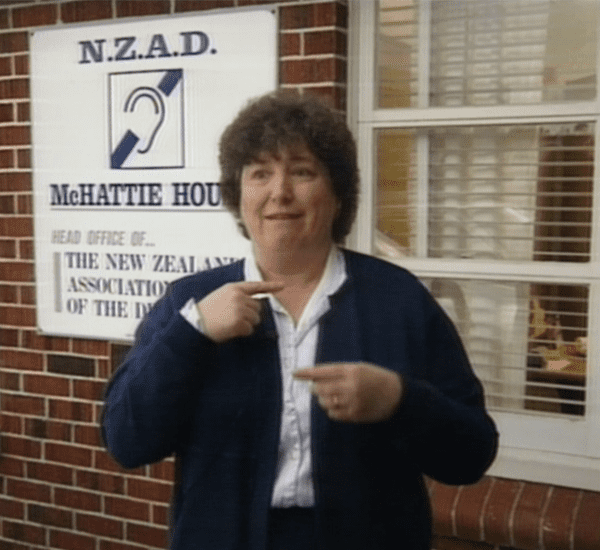
1992
video – Taonga source: Television New Zealand Archive
New Zealand Police Commissioner considers Deaf access to justice
Two weeks after 'The Remand of Ivan Curry' screens on TV1, Police Commissioner John Jamieson meets with Jennifer Brain to work out better procedures for dealing with Deaf people in custody.

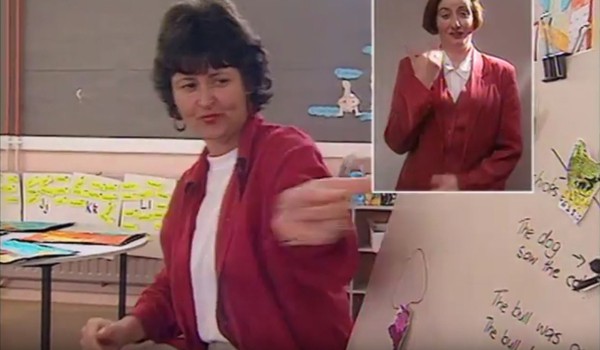
1996
video – Taonga source: Television New Zealand Archive
A look into the new bilingual approach at Kelston Deaf Education Centre
One of the goals of 1996’s Deaf Awareness Week was to better educate New Zealanders about New Zealand Sign Language, and as part of this, One Network News visited Kelston Deaf Education Centre in Auckland. KDEC which has a new bilingual teaching method using both NZSL and English.

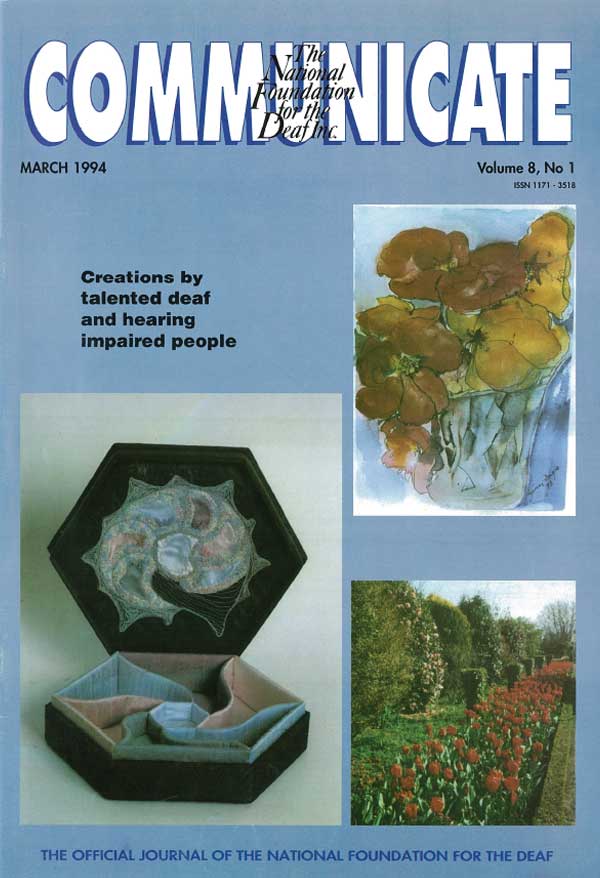
1994
publication – Taonga source: National Foundation for Deaf and Hard of Hearing
NFD Communicate: March 1994


1965
video – Taonga source: Auckland Deaf Society
Washington Xth International Silent Games
The New Zealand team attending the 10th World Deaf Games in Washington, USA, 1965.
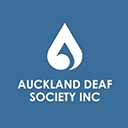
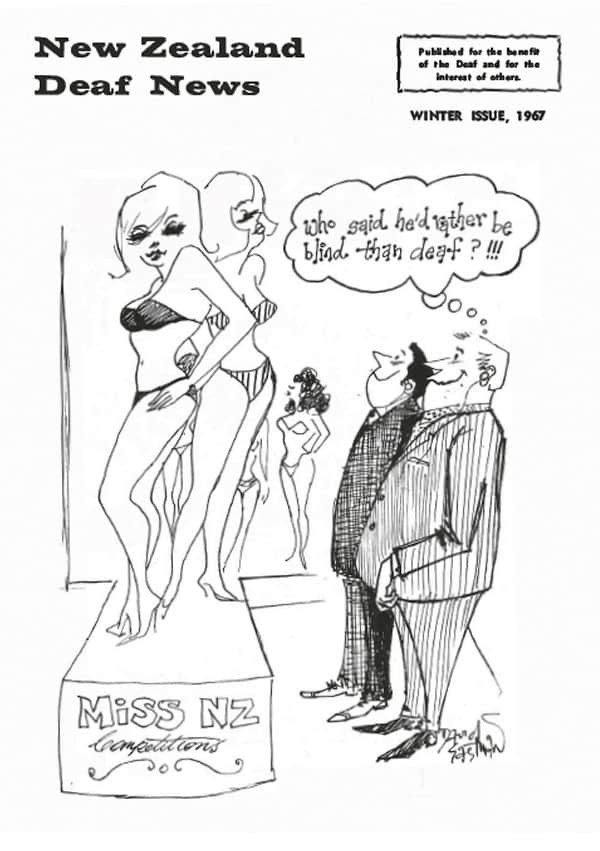
1967
publication – Taonga source: New Zealand Deaf News
NZ Deaf News: 1967 (Vol. 4, No. 4)

1969
publication – Taonga source: New Zealand Deaf News
NZ Deaf News: October 1969 (Vol. 6, No. 4)
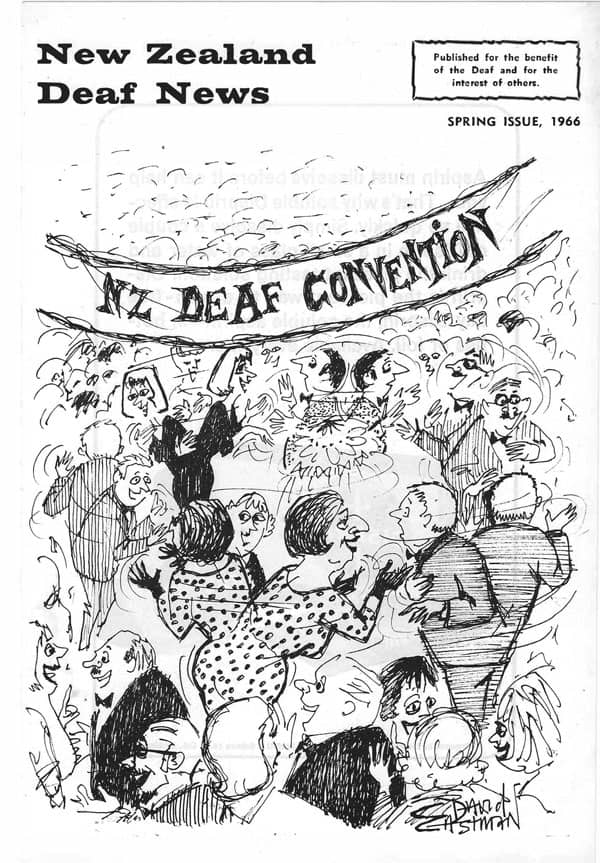
1966
publication – Taonga source: New Zealand Deaf News
NZ Deaf News: Spring 1966 (Vol. 4, No. 1)

2013
video – Taonga source: Attitude Pictures
Young and Deaf: Dean’s Story
Dean Buckley is a young Deaf man on a mission. Only eighteen years old, Dean's already experienced a great deal of adversity, and now he's determined to become a leader and advocate for other Deaf teenagers. First up, taking on the challenges of Youth Parliament, representing Deaf MP Mojo Mathers.

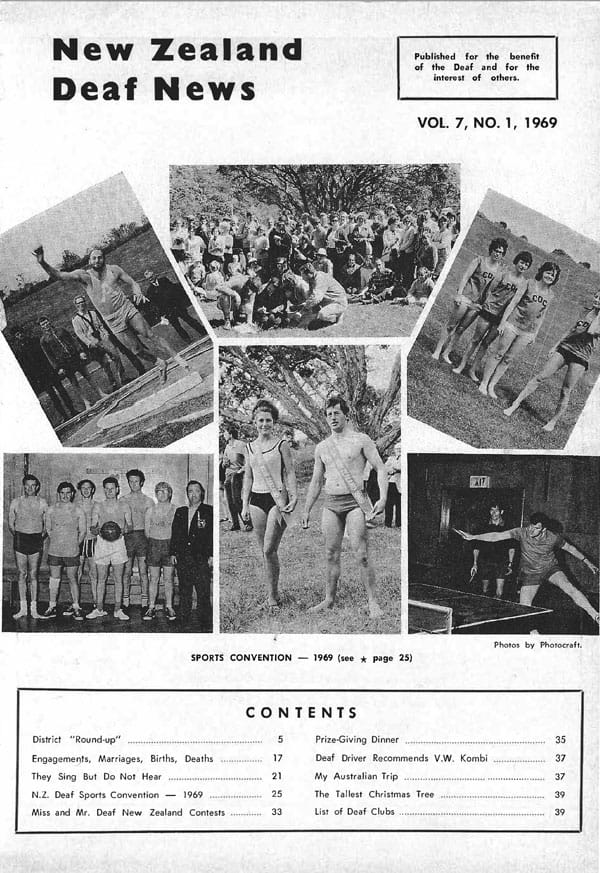
1969
publication – Taonga source: New Zealand Deaf News
NZ Deaf News: 1969 (Vol. 7, No. 1)
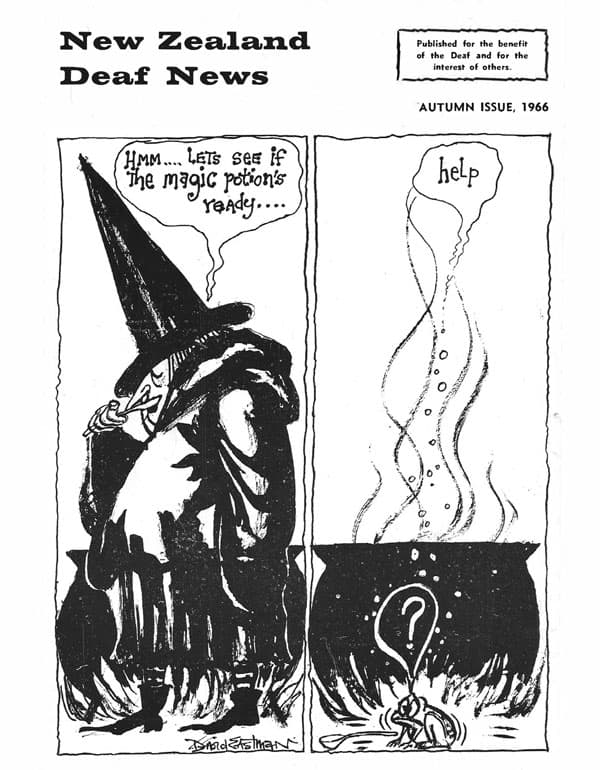
1966
publication – Taonga source: New Zealand Deaf News
NZ Deaf News: Autumn 1966 (Vol. 3, No. 3)
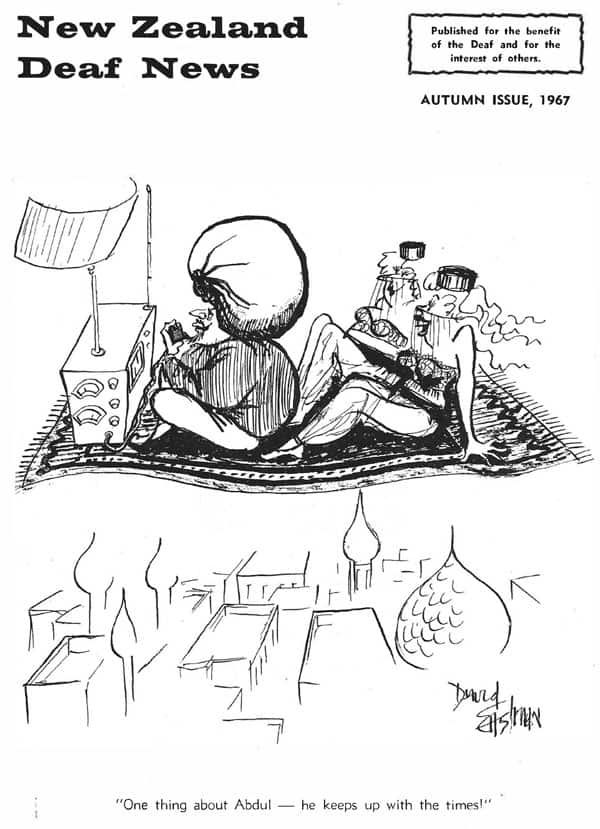
1967
publication – Taonga source: New Zealand Deaf News
NZ Deaf News: Autumn 1967 (Vol. 4, No. 3)
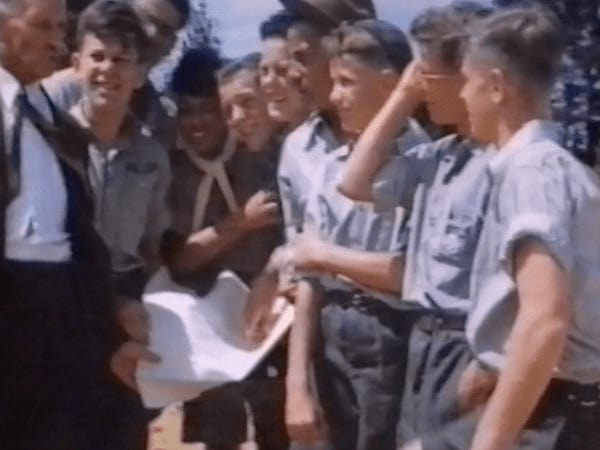
1956-57
video – Taonga source: Susan Hamilton
Kelston School for Deaf: Clearing of the Ground and Construction
Students from the Titirangi School for the Deaf visit the construction site of the future Kelston School for the Deaf.
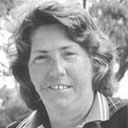
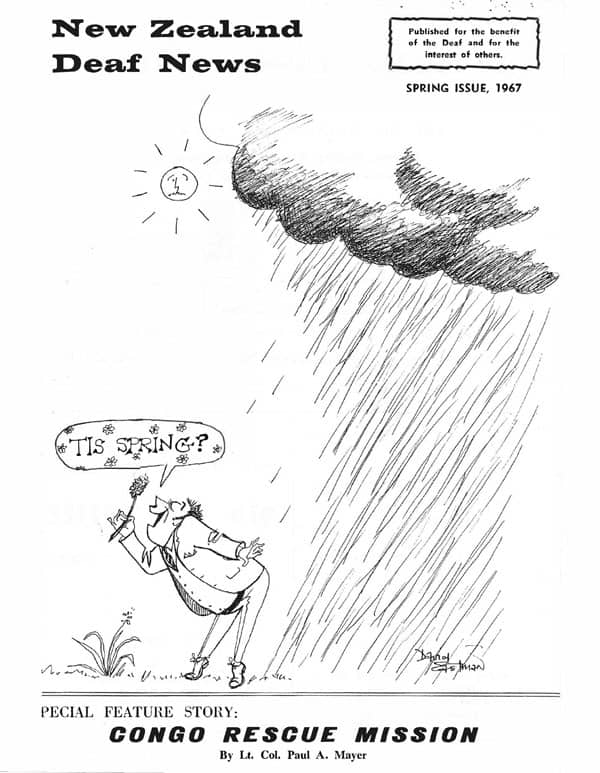
1967
publication – Taonga source: New Zealand Deaf News
NZ Deaf News: Spring 1967 (Vol. 5, No. 1)
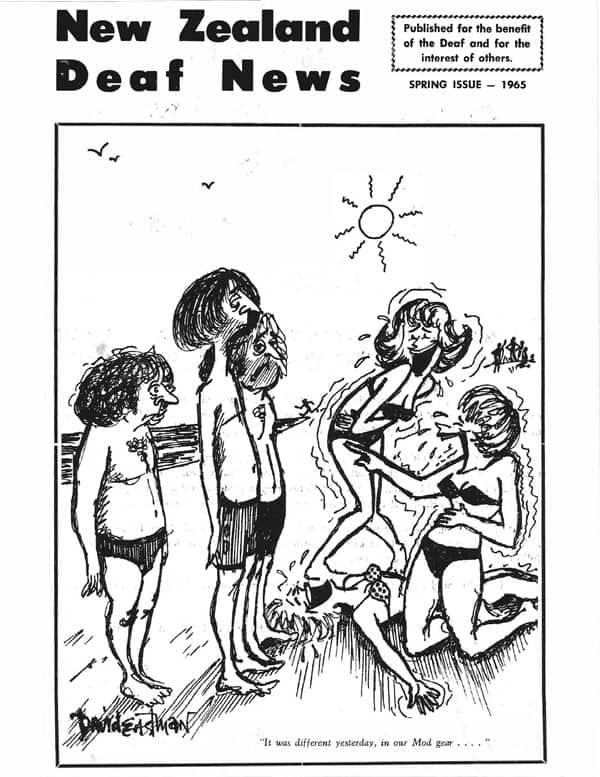
1965
publication – Taonga source: New Zealand Deaf News
NZ Deaf News: Spring 1965 (Vol. 3, No. 1)
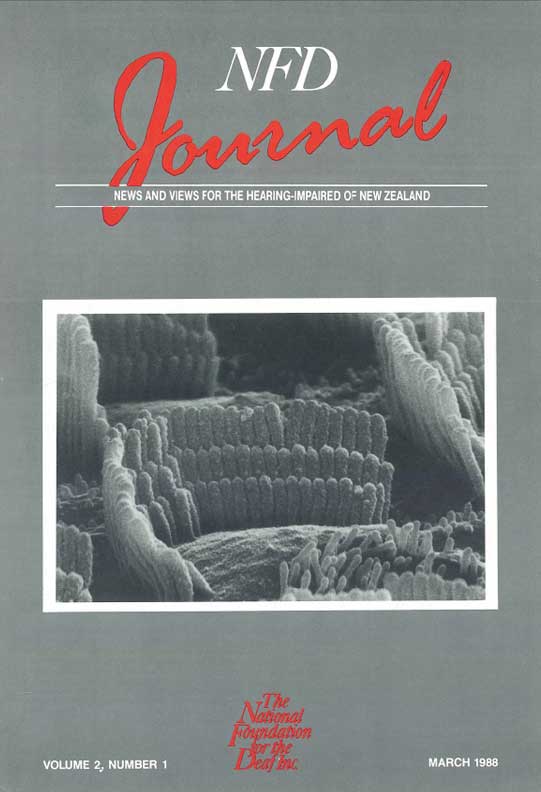
1988
publication – Taonga source: National Foundation for Deaf and Hard of Hearing
NFD Journal: March 1988 (Vol. 2, No. 1)

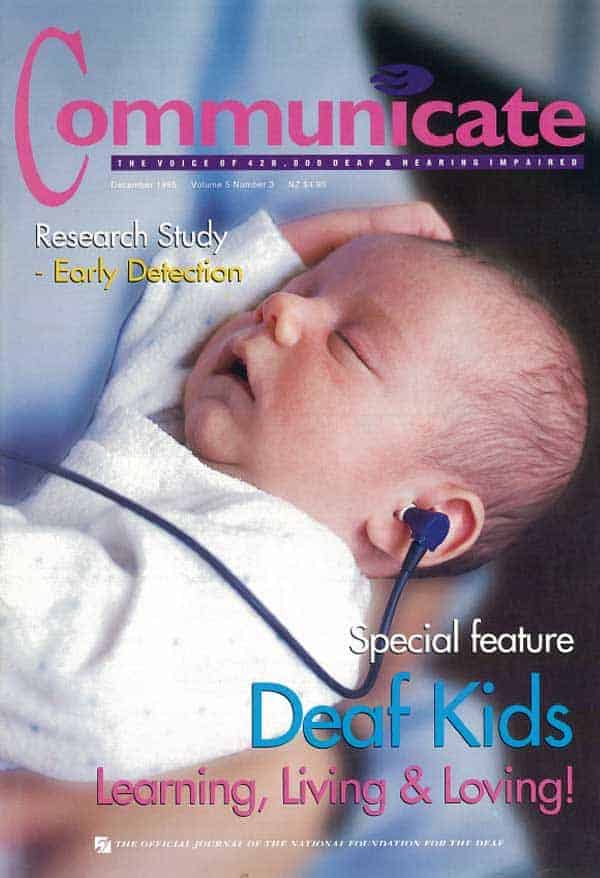
1995
publication – Taonga source: National Foundation for Deaf and Hard of Hearing
NFD Communicate: December 1995

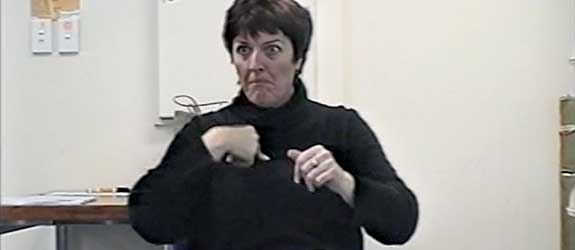
2004
video – Taonga source: AUT Visual Languages Section
Memories of Ava Buzzard (2004)
Ava Buzzard talks about commuting to school via her father’s motorbike, home signs, signing and oralism, and the next generation of signers.
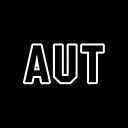
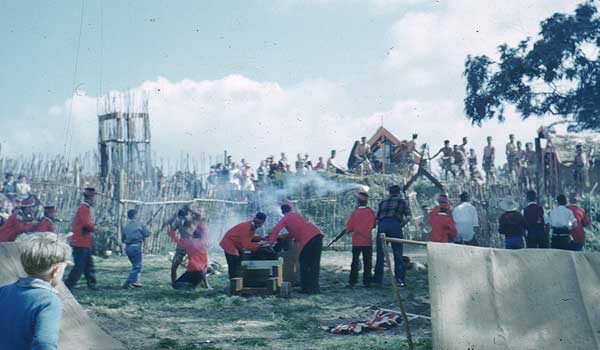
1959
video – Taonga source: Auckland Deaf Society
Te Pakanga O Whau – The Battle of Whau: Drama by Kelston School for the Deaf
The Battle of Whau: a drama by Kelston Deaf students for the opening ceremony of Kelston School for the Deaf, 7th November 1959.

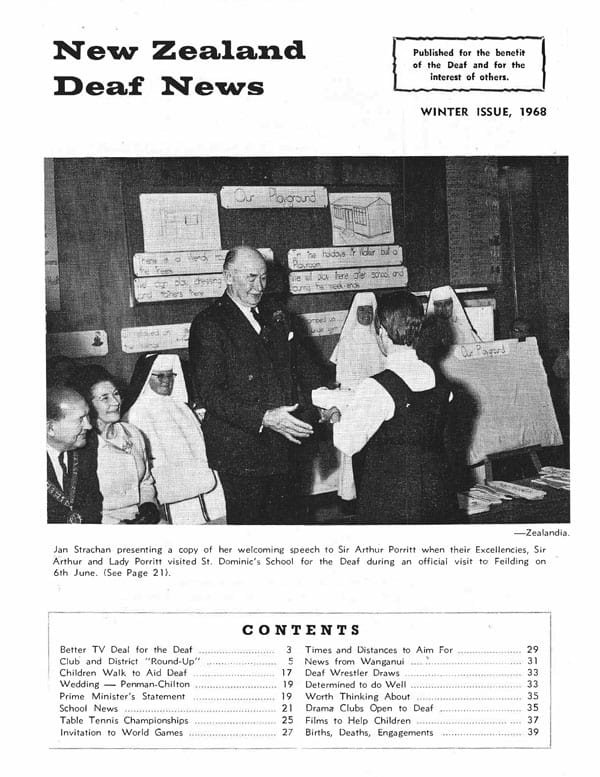
1968
publication – Taonga source: New Zealand Deaf News
NZ Deaf News: Winter 1968 (Vol. 5, No. 4)

2009
video – Taonga source: Kerry Titcombe
Deaf couple win medals: Kerry Titcombe and Michael Lynch
Michael Lynch and Kerry Titcombe won karate medals when they competed in the Deaflympics in Taiwan (gold and bronze). They are both interviewed on the grounds of Kelston Deaf Education Centre, along with the President of Deaf Sports New Zealand, Nicki Morrison.


1962
video – Taonga source: Susan Hamilton
Driver training for Deaf students
Two traffic officers visit Kelston to teach older Deaf students the drivers road code.

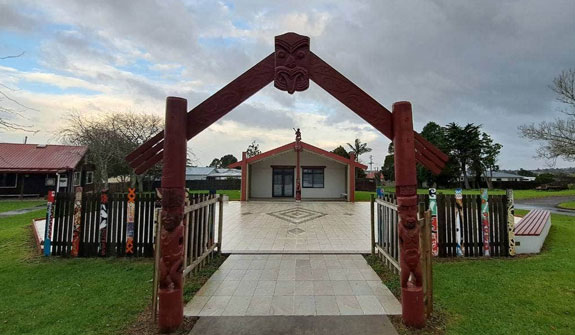
2022
article – Taonga source: Stuff
Aotearoa’s first Deaf marae celebrates 30 years of empowering Turi Māori
Friday marks 30 years since the opening of the country’s first marae for Deaf and hard of hearing Māori. Since 1992, Rūaumoko Marae, in West Auckland’s Kelston, has been a place where Deaf students can learn about te ao Māori.

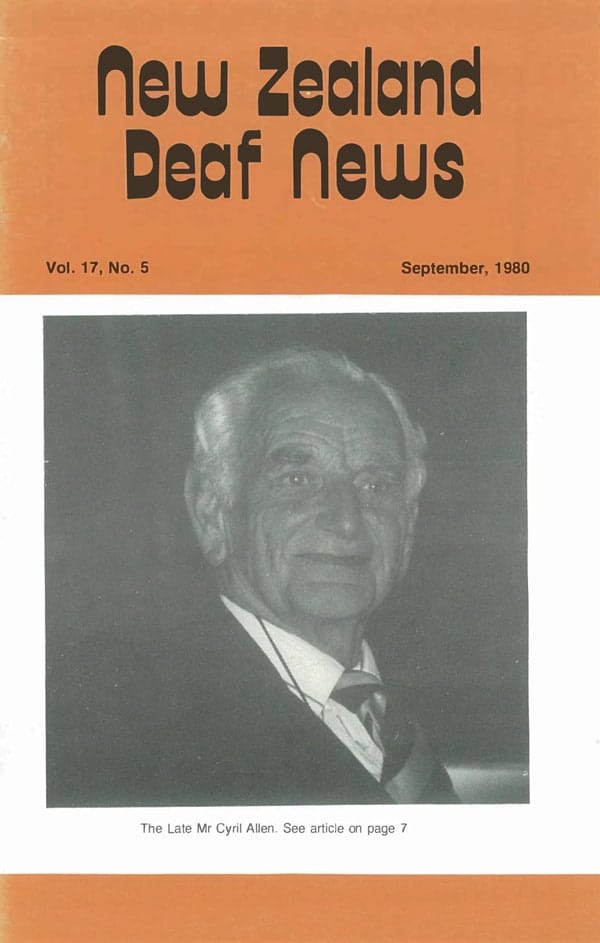
1980
publication – Taonga source: New Zealand Deaf News
NZ Deaf News: September 1980 (Vol. 17, No. 5)
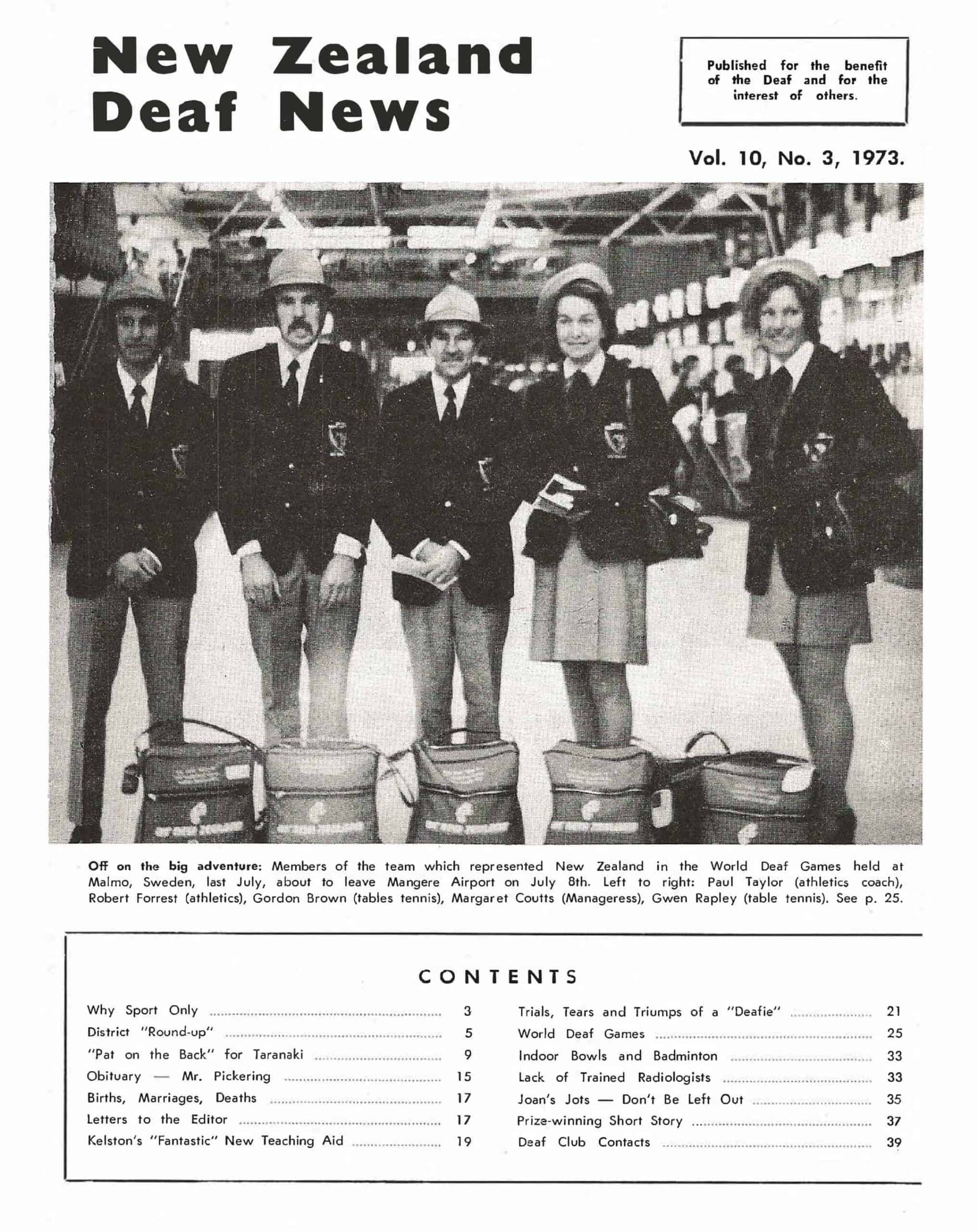
1973
publication – Taonga source: New Zealand Deaf News
NZ Deaf News: 1973 (Vol. 10, No. 3)
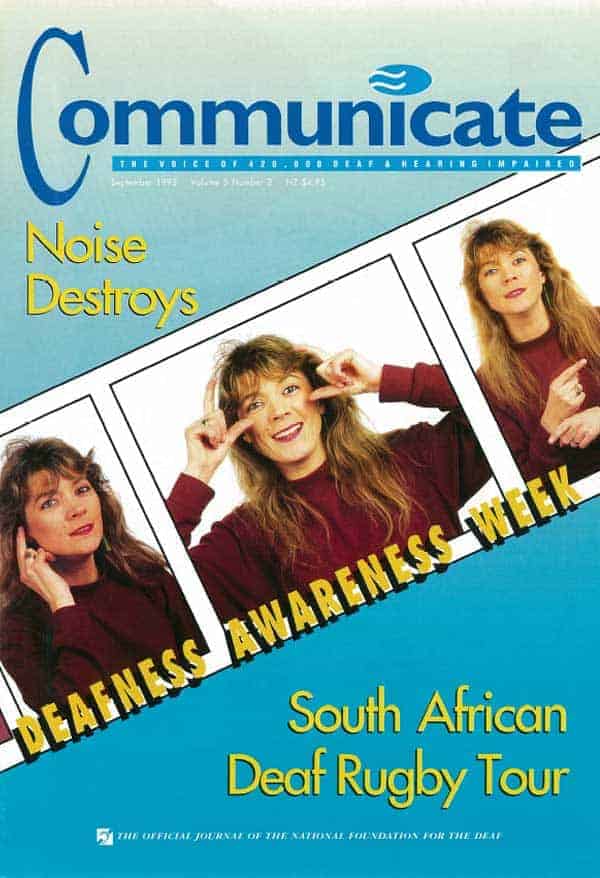
1995
publication – Taonga source: National Foundation for Deaf and Hard of Hearing
NFD Communicate: September 1995

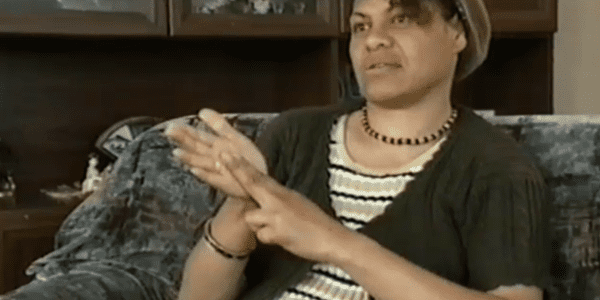
2004
video – Taonga source: Rūaumoko Komiti
Connecting with Māori culture: an interview with Joanne Klaver
Raw footage of an interview with solo mother Joanne Klaver, attempting to connect with a Māori culture she was denied growing up, and one of her two sons, Charles, who is also Deaf.
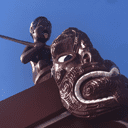

1992
publication – Taonga source: National Foundation for Deaf and Hard of Hearing
NFD Communicate: June 1992

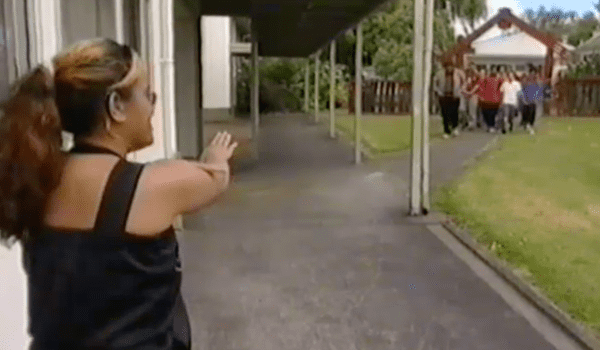
2004
video – Taonga source: Rūaumoko Komiti
A Day in the Life of Rūaumoko Marae
Insight into the preparations that go into a powhiri onto Rūaumoko Marae, and rare footage of the powhiri itself, followed by an interview with Patrick Thompson.

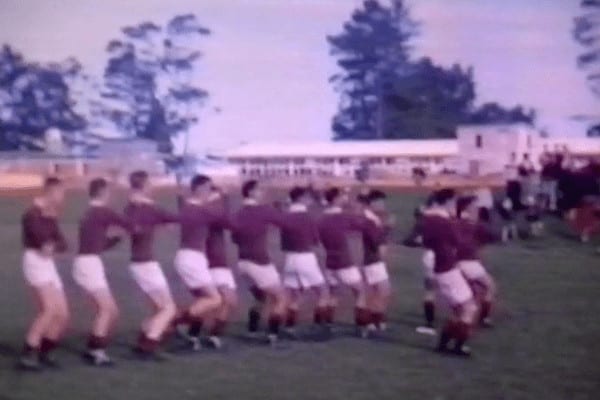
1958
video – Taonga source: Susan Hamilton
Rugby Union: Kelston vs St Kentigern College
Kelston School for the Deaf had a rugby team that played in the secondary school Grade 2C division, coming third in the 1958 season. Kelston beat St Kentigern 16 to 0.

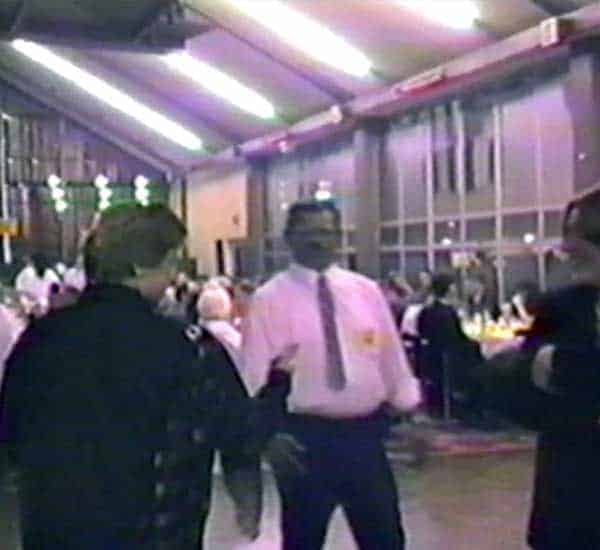
1992
video – Taonga source: Victoria University of Wellington
Jubilee Ball: Celebrating 50 Years of Deaf Schools in Auckland
Nearly 500 alumni and members of the Deaf community, well presented with dinner suits, bow ties, evening gowns, hairdos and the works enjoy an evening at the Avondale Racecourse.
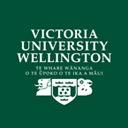
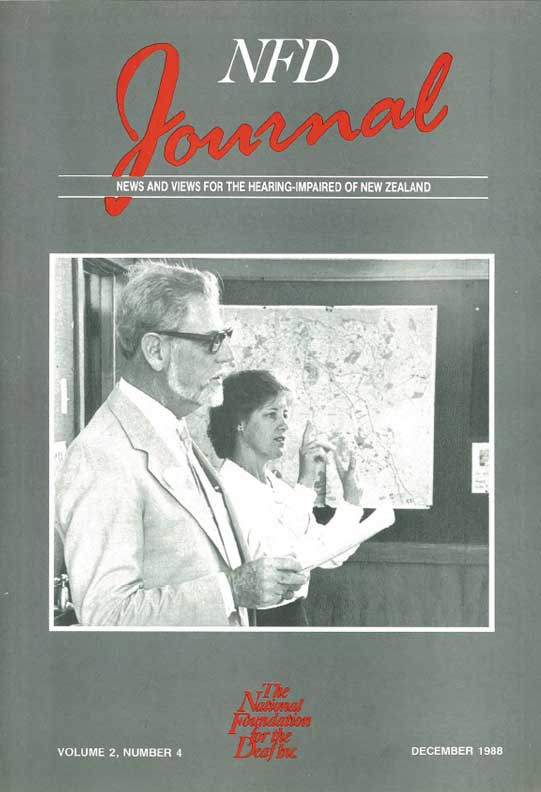
1988
publication – Taonga source: National Foundation for Deaf and Hard of Hearing
NFD Journal: December 1988 (Vol. 2, No. 4)

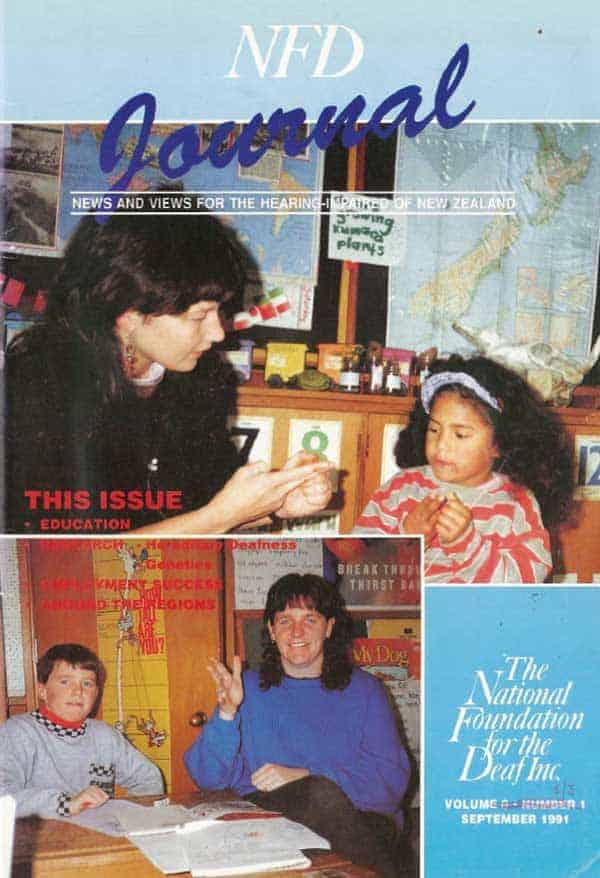
1991
publication – Taonga source: National Foundation for Deaf and Hard of Hearing
NFD Journal: September 1991 (Vol. 5, No. 3)

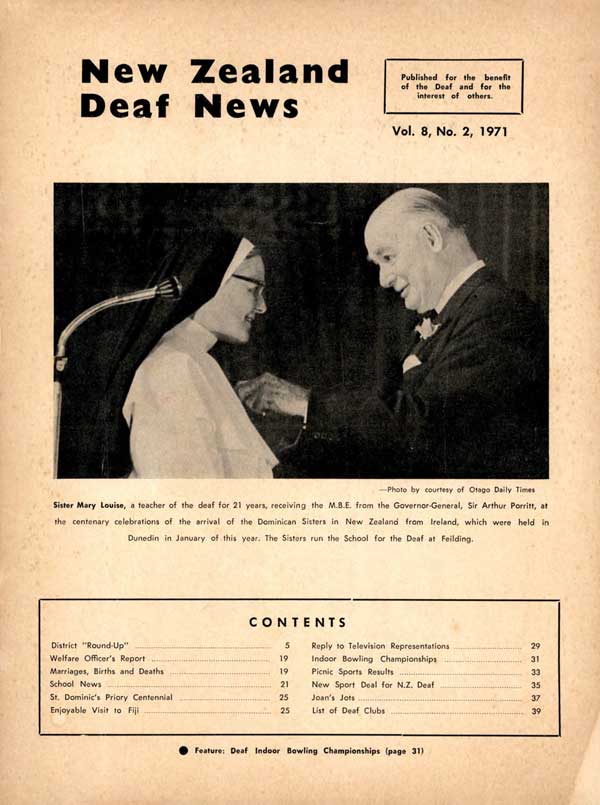
1971
publication – Taonga source: New Zealand Deaf News
NZ Deaf News: 1971 (Vol. 8, No. 2)

1956
video – Taonga source: Susan Hamilton
Picnic by the Parau Camp House
Titirangi students and their families picnic at the Parau Camp House in West Auckland. The property was purchased in 1955 and groups of children, teachers and parents spent many a happy weekend here.


1968
publication – Taonga source: New Zealand Deaf News
NZ Deaf News: Winter 1968 (Vol. 5, No. 4)
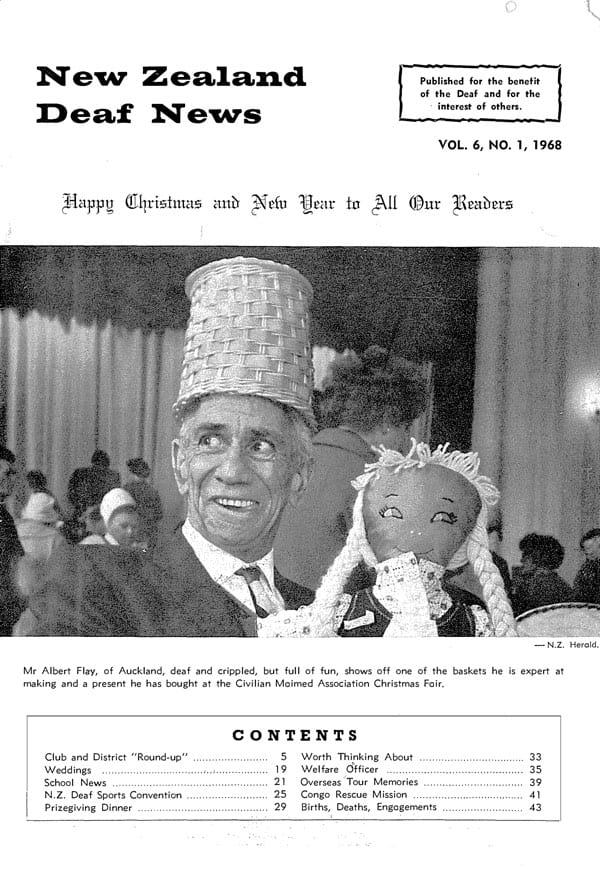
1968
publication – Taonga source: New Zealand Deaf News
NZ Deaf News: 1968 (Vol. 6, No. 1)

1997
video – Taonga source: Television New Zealand Archive
Eunike Mose, Pasifika Deaf student
Eunike Mose, a profoundly deaf Samoan high school student, and her mother Heather, talk about the challenges of being Deaf, particularly in relation to the family’s Pasifika heritage, and education.

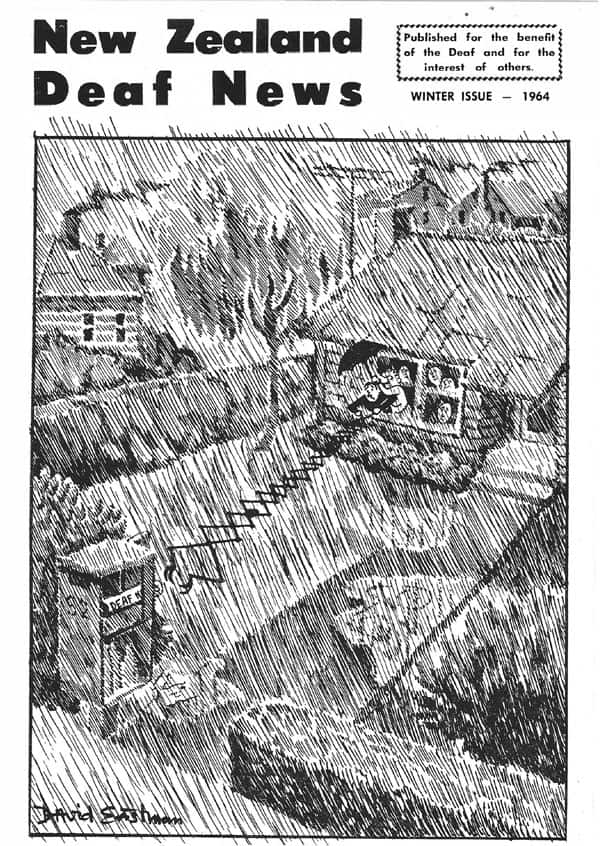
1964
publication – Taonga source: New Zealand Deaf News
NZ Deaf News: Winter 1964 (Vol. 1, No. 4)
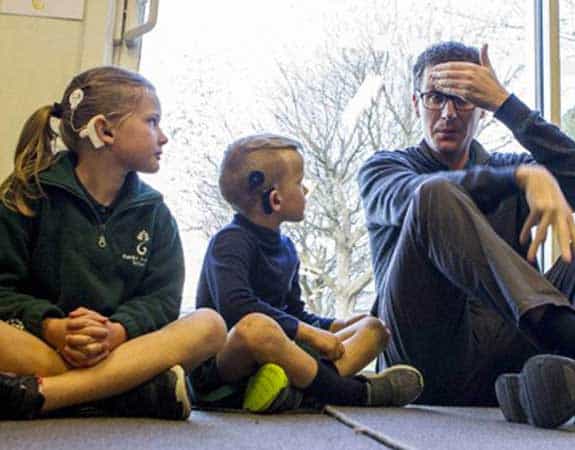
2018
article – Taonga source: Stuff
Report reveals uncertainty of future of deaf education
Serious inadequacies of a deaf education board serving thousands of children are being addressed by senior Ministry of Education officials. The ministry confirmed four complaints had been laid about student safety, staffing and low achievement at Auckland's Kelston Deaf Education Centre.

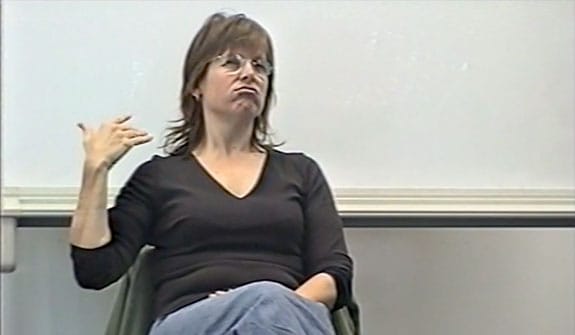
2004
video – Taonga source: AUT Visual Languages Section
Memories of Susan Thomas (2004)
Susan Thomas talks about her many life experiences, love of sports, and what it was like to work on ‘News Review’ as a Deaf presenter in the late 1980s.

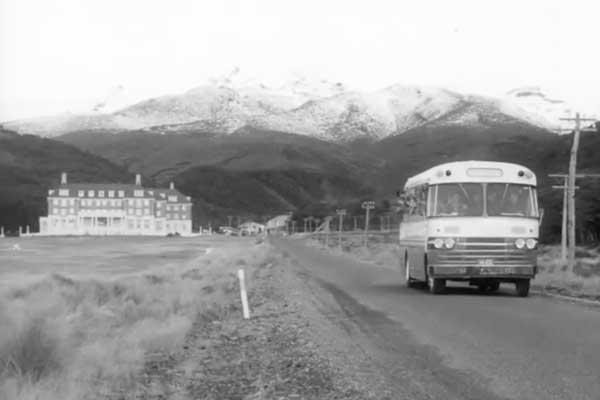
1960
video – Taonga source: Archives New Zealand
Kelston School for the Deaf students treated to a trip to Mt Ruapehu
Students from Kelston School for the Deaf enjoy a two-day trip to a snowy Mt Ruapehu.
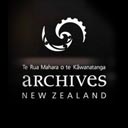
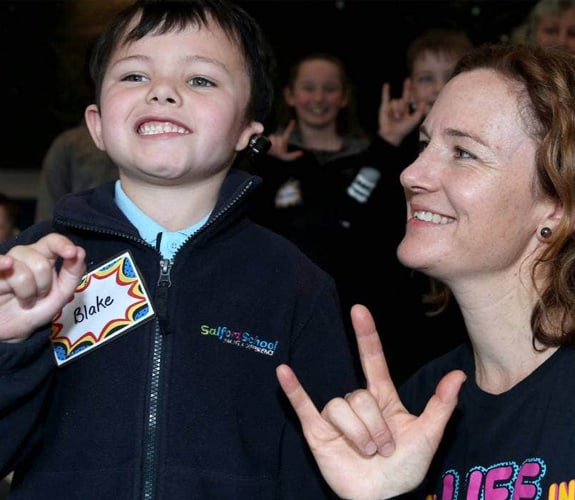
2019
article – Taonga source: Stuff
New Zealand’s two deaf education centres to merge
New Zealand's two deaf education centres will become one next year as Kelston Deaf Education Centre and van Asch Deaf Education Centre merge from Term 3, 2020.

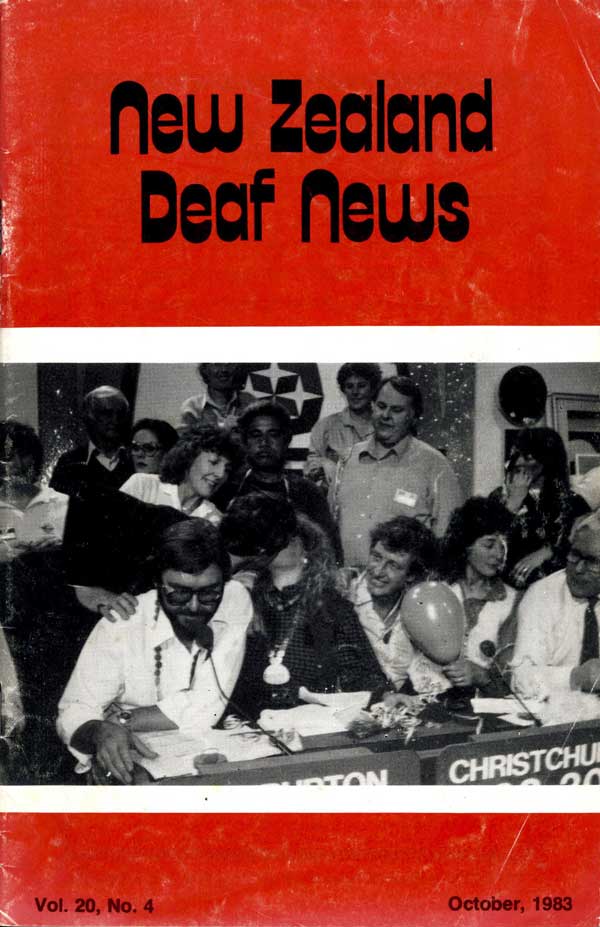
1983
publication – Taonga source: New Zealand Deaf News
NZ Deaf News: October 1983 (Vol. 20, No. 4)
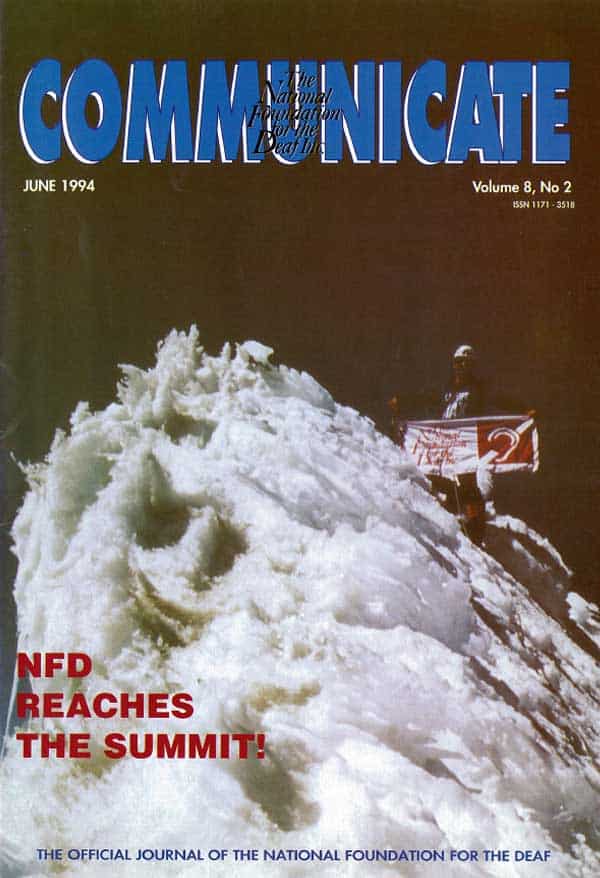
1994
publication – Taonga source: National Foundation for Deaf and Hard of Hearing
NFD Communicate: June 1994

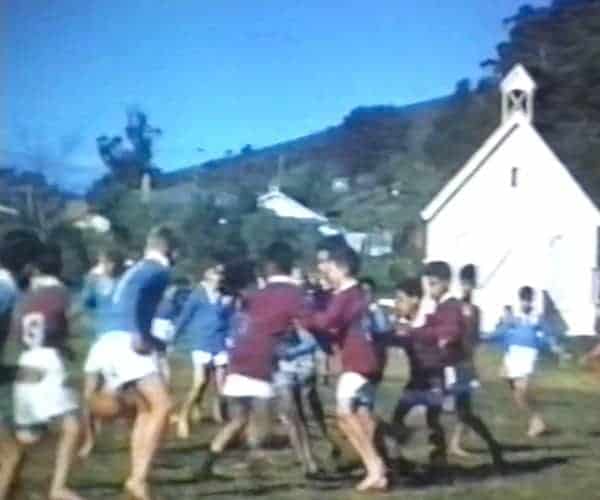
1961
video – Taonga source: Susan Hamilton
Kelston School for Deaf sends its netball and rugby teams to Russell
Kelston School for Deaf sends its netball and rugby teams to Russell.

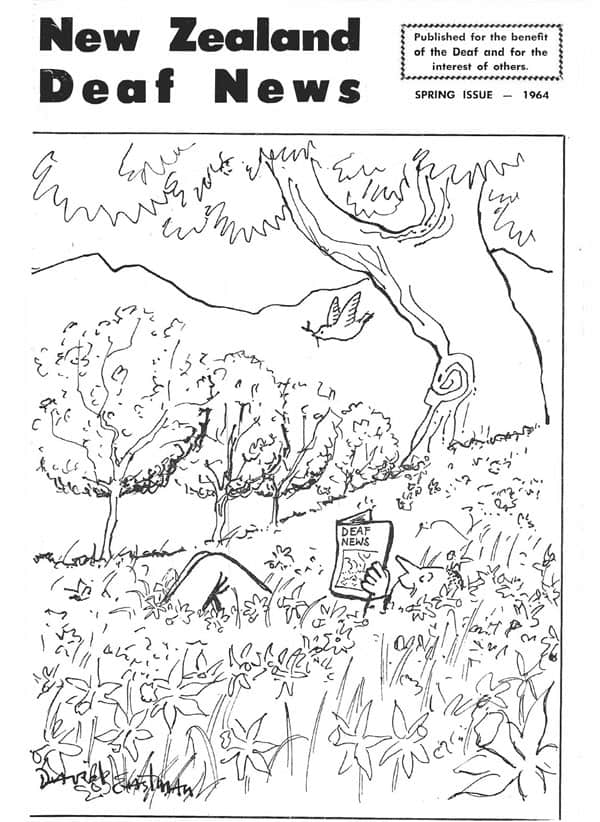
1964
publication – Taonga source: New Zealand Deaf News
NZ Deaf News: Spring 1964 (Vol. 2, No. 1)
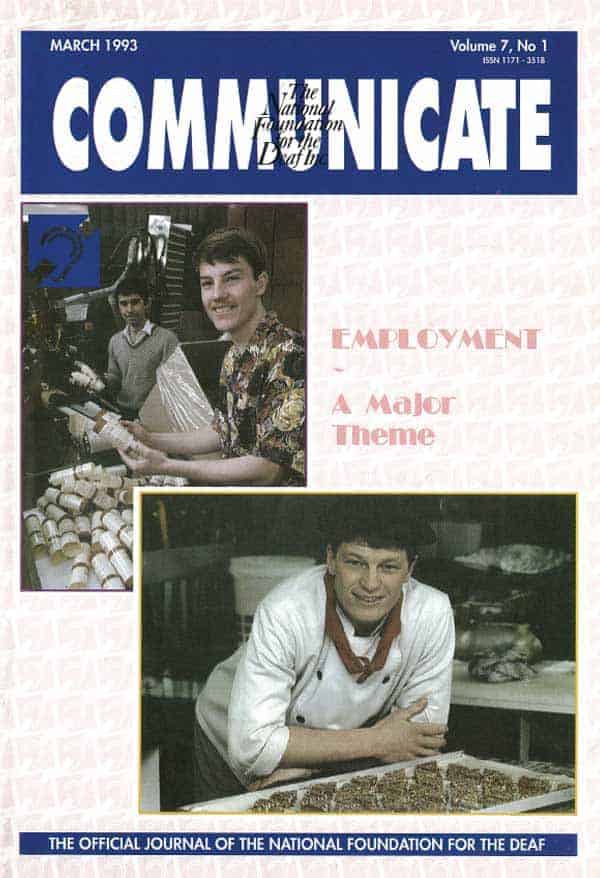
1993
publication – Taonga source: National Foundation for Deaf and Hard of Hearing
NFD Communicate: March 1993

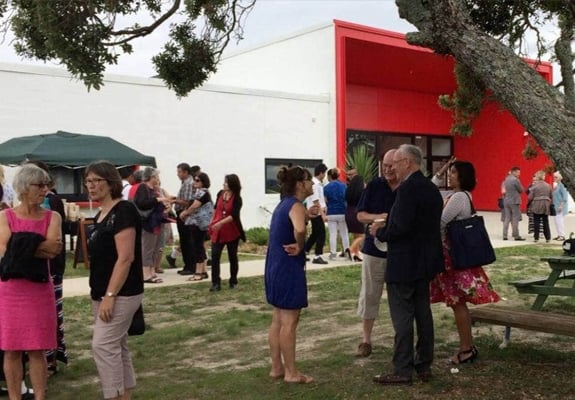
2017
article – Taonga source: Western Leader
Milestone in deaf education
A multimillion dollar education centre is helping deaf students communicate. More than 400 people attended the opening of the Kelston Deaf Education Centre (KDEC) rebuild on February 28, 2017.

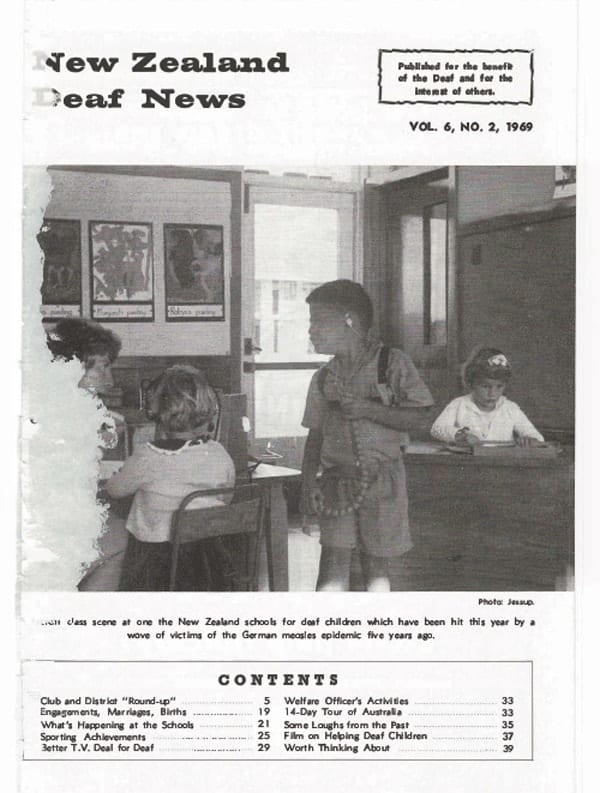
1969
publication – Taonga source: New Zealand Deaf News
NZ Deaf News: 1969 (Vol. 6, No. 2)
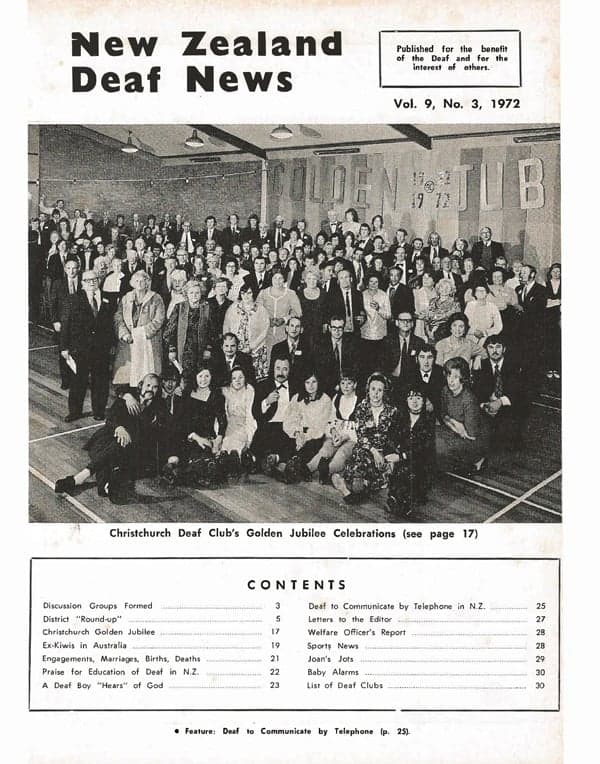
1972
publication – Taonga source: New Zealand Deaf News
NZ Deaf News: 1972 (Vol. 9, No. 3)
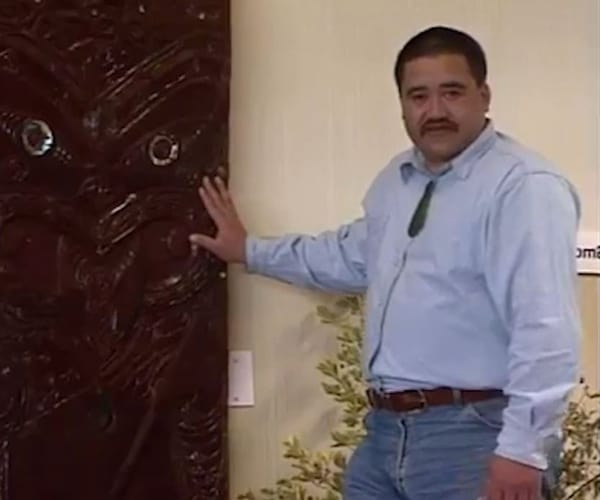
1995
video – Taonga source: Television New Zealand Archive
Michael Wi, Māori Deaf
Michael Wi, is profiled on ‘Marae’, where he shares his experience of growing up as Māori Deaf in a paheka-centric education environment, and learning as an adult about tikanga Māori, and marae protocols.


1986
video – Taonga source: Ngā Taonga Sound & Vision
The Magic Park
In November 1986, film maker Ann Andrews organised a week-long drama workshop for six 13 year olds from Kelston School for the Deaf. The workshop concluded with the play, The Magic Park, written and acted by the students.
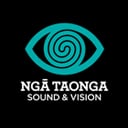

1959
video – Taonga source: Susan Hamilton
Parent’s Day at Kelston School for the Deaf (1959)
Annual Parent’s Day at Kelston School for the Deaf, with rides (horses, fire tank and alike!), performances and end-of-year prizes.

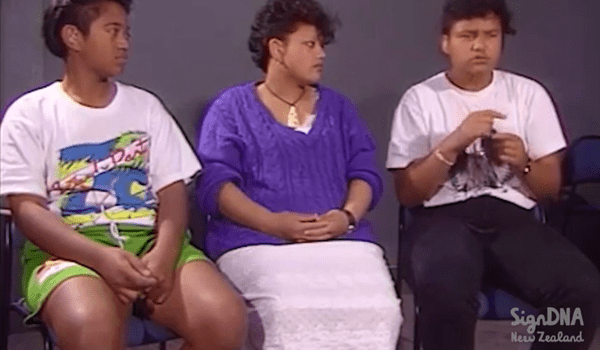
1991
video – Taonga source: Television New Zealand Archive
Māori Deaf and Deaf education
A look at the cultural education needs of Māori Deaf students. Māori Deaf are likely to experience more barriers in the education sector. Interviews undertaken by ‘Marae’ shows us that the multiple cultural identities of Māori Deaf are not completely accommodated for with aspirations on how to resolve this.


1992
video – Taonga source: Victoria University of Wellington
A journey through the 50 years of Auckland Schools for the Deaf
A NZSL narrated video taking viewers through the history of Auckland Schools for the Deaf, from Newton East, Myers Park, Titirangi, Mt Wellington and finally, Kelston.


1998
publication – Taonga source: National Foundation for Deaf and Hard of Hearing
NFD Communicate: Summer 1998

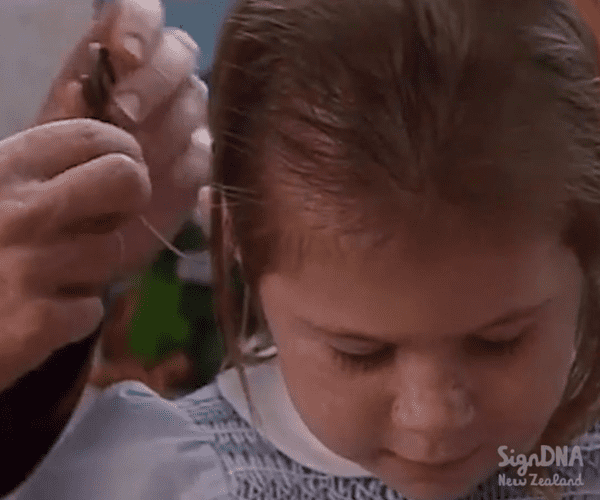
1993
video – Taonga source: Television New Zealand Archive
Sounds or Silence?
In the early 1990s, due to a breakthrough in technology, cochlear implants were starting to become the norm. The Deaf community worldwide viewed cochlear implants as a device that disregarded the need for access to sign language. Others considered such devices a miracle. In 1993, ‘60 Minutes’ investigated this controversial topic in New Zealand.

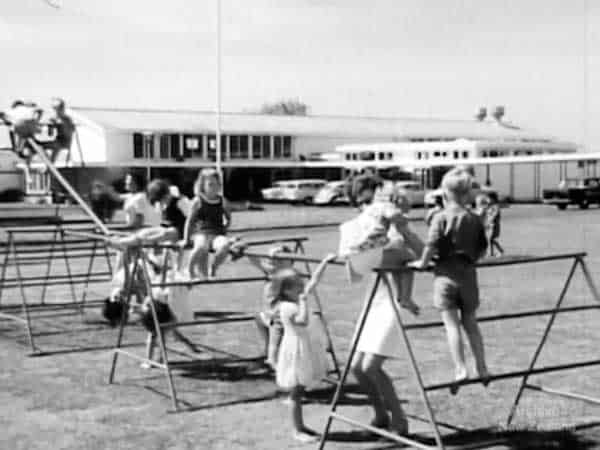
1968
video – Taonga source: St Dominic’s Catholic Deaf Centre
A Deaf Child in the Family
“A Deaf Child in the Family” is an award-winning film which shows authentic scenes from Deaf education centres at Kelston, St Dominics and Sumner, produced as a resource for families of deaf children.
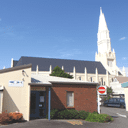

2017
video – Taonga source: Meghan Coppage
Memories of Susan Hamilton
Susan Hamilton is interviewed by Meghan Coppage, where she recounts a range of experiences from her life. From growing up at a Deaf school, to her memories of time in the Deaf community in bygone days, to seeing the changes at Kelston Deaf Education Centre including the transition to new school building.

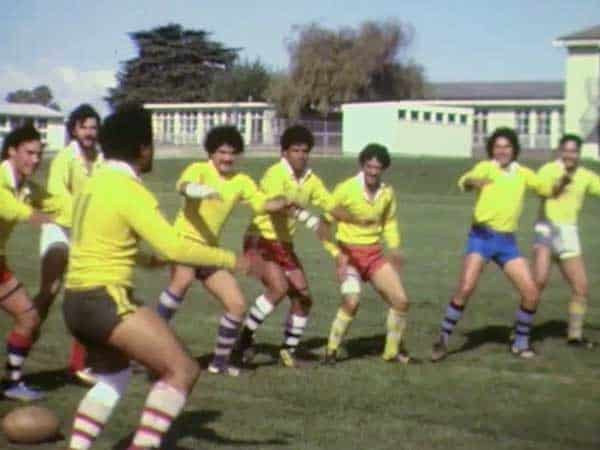
1970
video – Taonga source: Pam and Doug Croskery
Deaf social rugby match: Married vs Single men
An informal annual rugby game between teams of Deaf men, married and single, which was played on one of Kelston Deaf Education Centre’s fields.

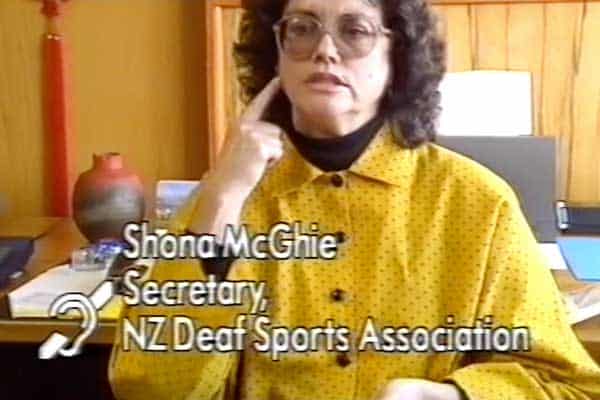
1989
video – Taonga source: Deaf Aotearoa
National Foundation for the Deaf promotional video
National Foundation for the Deaf produce a promotional video explaining their role and the purpose of their member organisations.
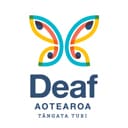
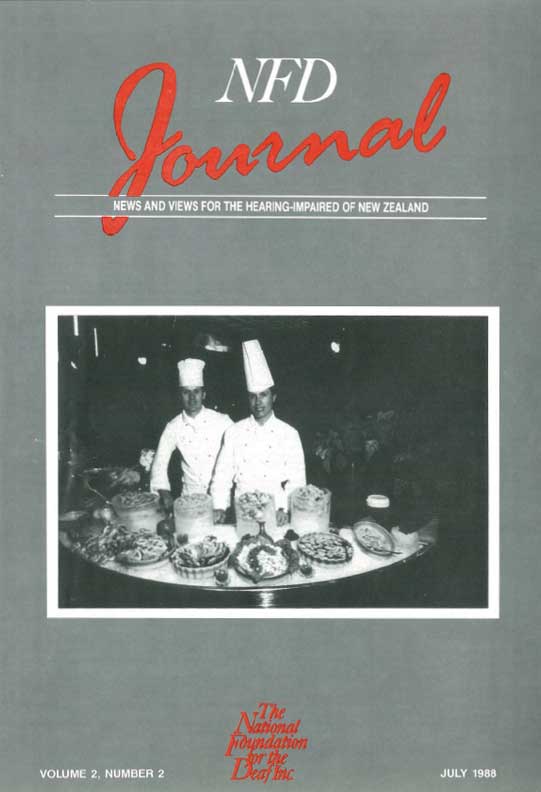
1988
publication – Taonga source: National Foundation for Deaf and Hard of Hearing
NFD Journal: July 1988 (Vol. 2, No. 2)


1960
video – Taonga source: Susan Hamilton
Formal opening of Parau, a beach property with a large brick hostel
Parents of deaf children raised thousands of pounds to buy a beach property at Parau where a large brick hostel was built. Groups of children, teachers and parents spent many a happy weekend there.

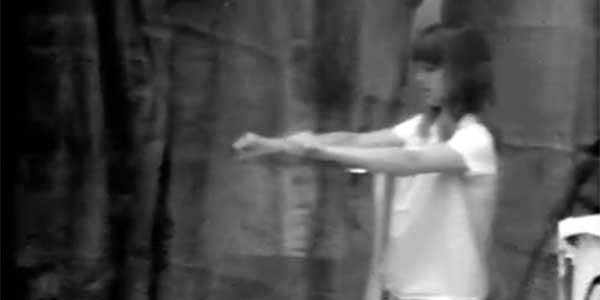
1977
video – Taonga source: Ngā Taonga Sound & Vision
Outreach Drama Workshop
Written and directed by Kelston School for Deaf Children Standard 3 students, the play depicts a girl's nightmare in which she is abducted by aliens and encounters witches, Frankenstein's Monster and various other creatures.

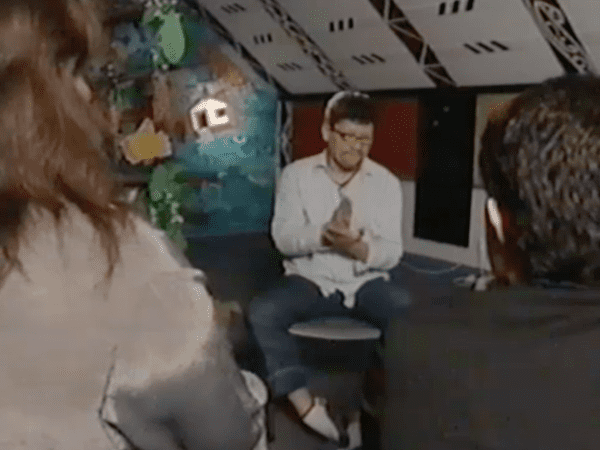
2004
video – Taonga source: Rūaumoko Komiti
Being Māori Deaf: Interview with Patrick Thompson
Raw footage of an interview with Patrick Thompson attempting to connect with a Māori culture he was denied growing up. Patrick provides a voice for Māori Deaf, to grow understanding about the challenges they face, and to promote the importance of NZSL.

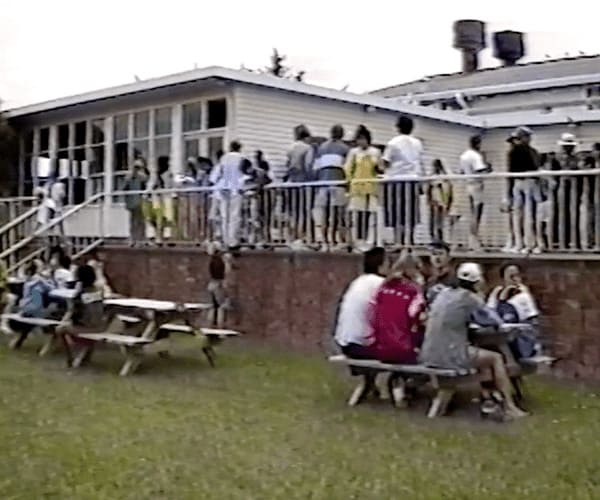
1992
video – Taonga source: Susan Hamilton
Sports Day at Kelston Deaf Education Centre
Kelston Deaf Education Centre hosts its annual sports day, with athletics, swimming and prizegiving.

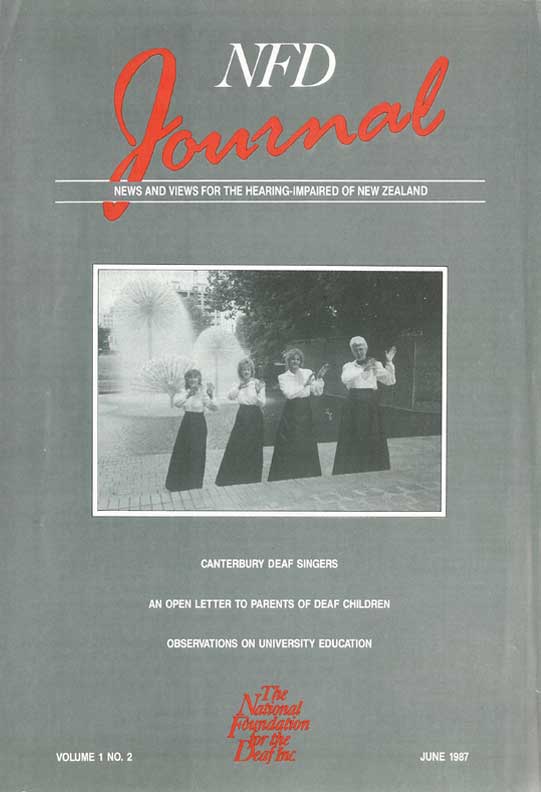
1987
publication – Taonga source: National Foundation for Deaf and Hard of Hearing
NFD Journal: June 1987 (Vol. 1, No. 2)


2019
article – Taonga source: Stuff
Deaf children need better access to New Zealand Sign Language to close the education gap
Lack of access to interpreters means deaf children are missing out on education. There are about 3600 children in the deaf education system, of which about 96 per cent attend mainstream schools. There are just three NZSL educational interpreters working full time with students, meaning most children were missing out.


1955
video – Taonga source: Susan Hamilton
Annual Sports Day at Mt Wellington
Annual school sports day at the large grounds at Mt Wellington, with the school surrounded by farmland. The Titirangi children travelled to Mt Wellington by buses. Mt Wellington closed once the Kelston hostel block opened in 1960.


1955
video – Taonga source: Susan Hamilton
School for the Deaf pupils visit Auckland Zoo
Deaf pupils visit Auckland Zoo and enjoy group rides on an elephant at the zoo.

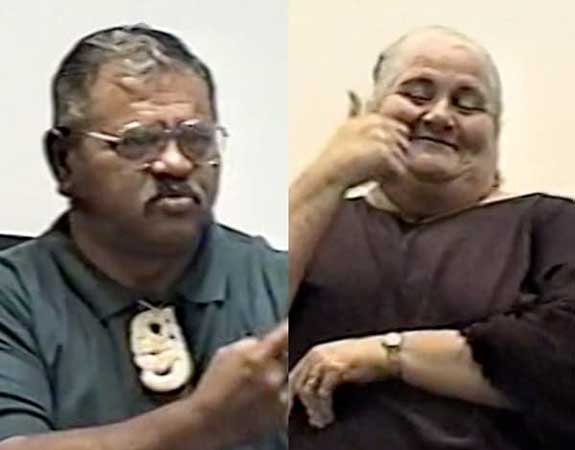
2000
video – Taonga source: AUT Visual Languages Section
Memories of Ivan and Hilda Tamepo
In an open and touching interview, Ivan and Hilda tell their tales of growing up in New Zealand, and look back on photos from their deaf schooling years.

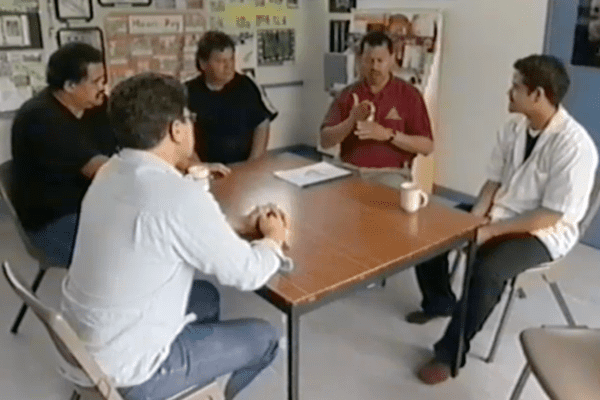
2004
video – Taonga source: Rūaumoko Komiti
The Māori Deaf world: Interviews with Whiti Ronaki, Stephanie Awheto and Michael Wi
This raw, edited footage consists of interviews with Whiti Ronaki, Michael Wi and Stephanie Awheto - a trilingual interpreter, on topics relevant in the Māori Deaf world.

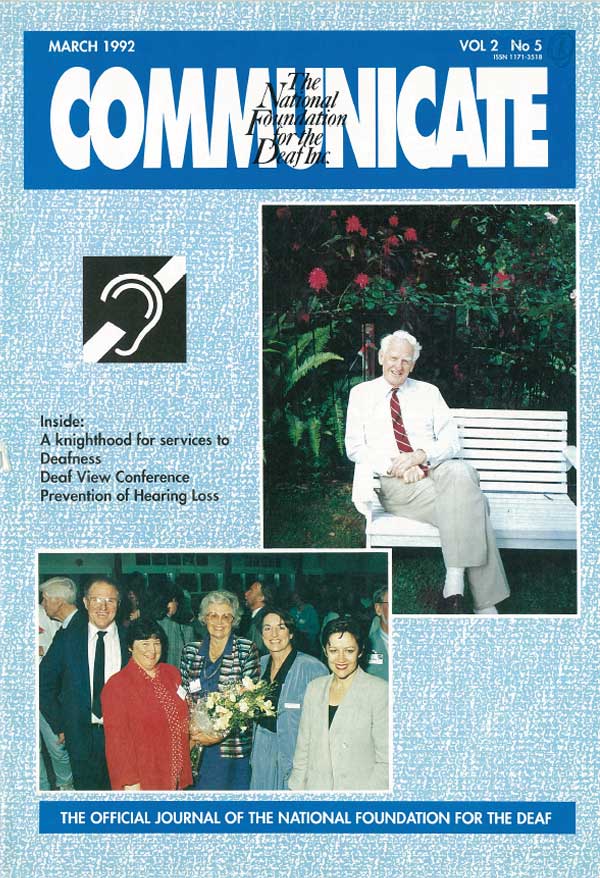
1992
publication – Taonga source: National Foundation for Deaf and Hard of Hearing
NFD Communicate: March 1992


1999
video – Taonga source: Rūaumoko Komiti
Mai Time features NZSL!
Mai Time made one of their episodes accessible in NZSL to mark Deaf Awareness Week 1999. KDEC’s sign singing choir and Patrick Thompson made an appearance along with as did Rūaumoko Marae’s kapa haka roopu.

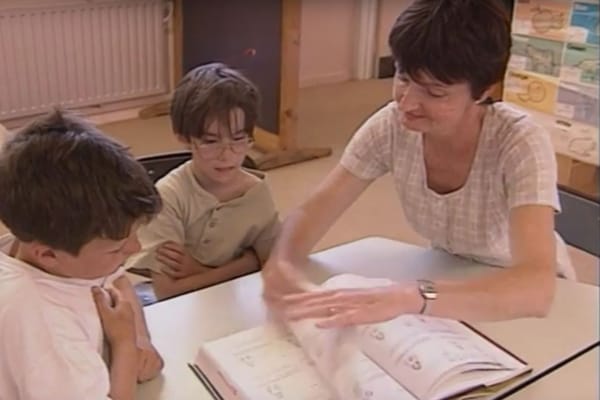
1997
video – Taonga source: Television New Zealand Archive
The modern NZSL dictionary is launched
The modern dictionary of New Zealand Sign Language has been launched, and the 'Tonight' crew visit Kelston Deaf Education Centre to see Deaf students and their NZSL tutors making good use of the resource.

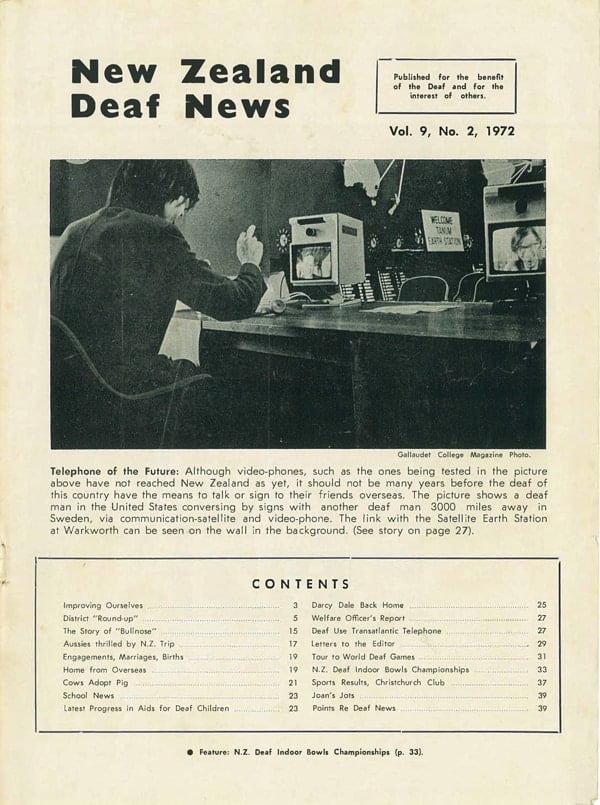
1972
publication – Taonga source: New Zealand Deaf News
NZ Deaf News: 1972 (Vol. 9, No. 2)
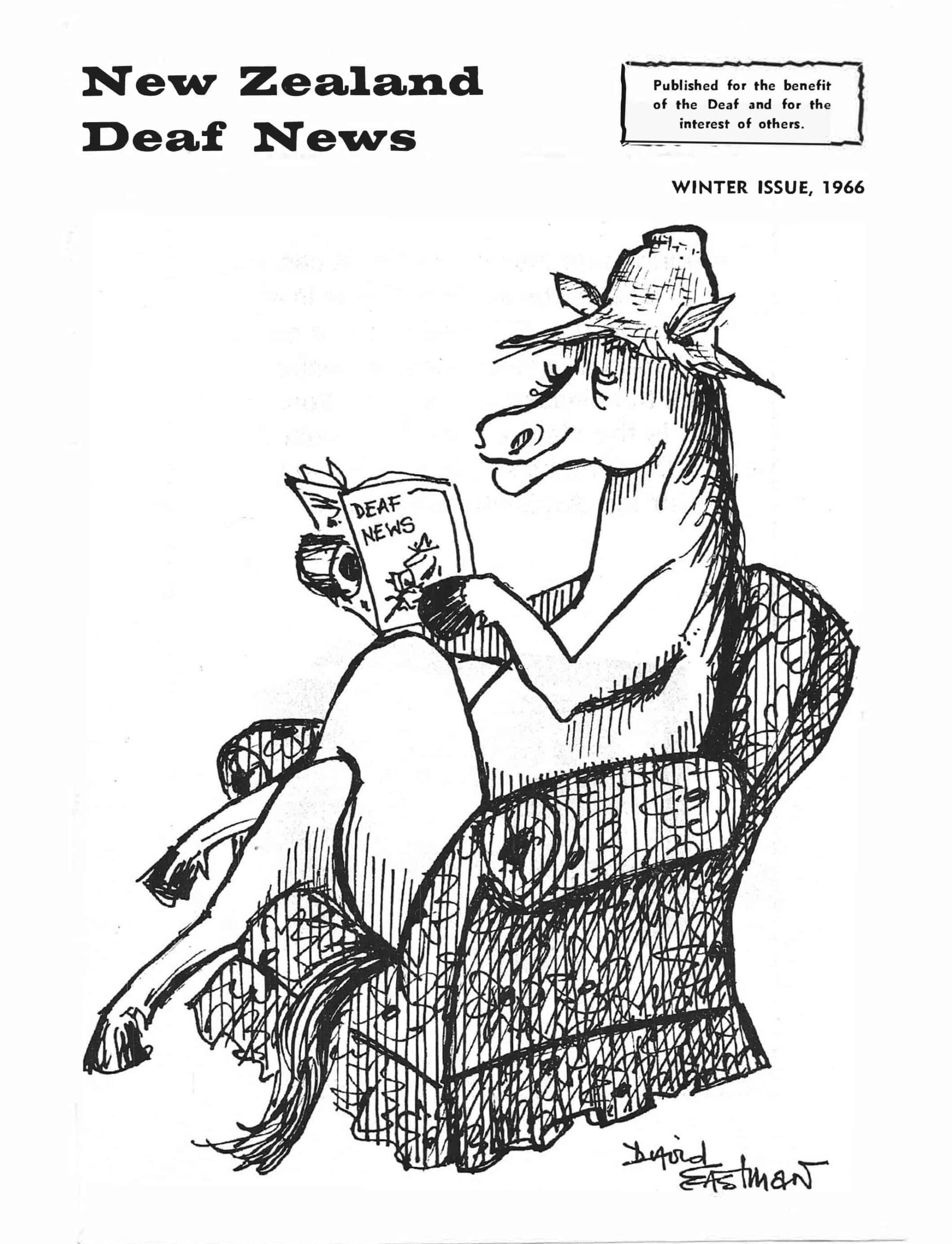
1966
publication – Taonga source: New Zealand Deaf News
NZ Deaf News: Winter 1966 (Vol. 3, No. 4)
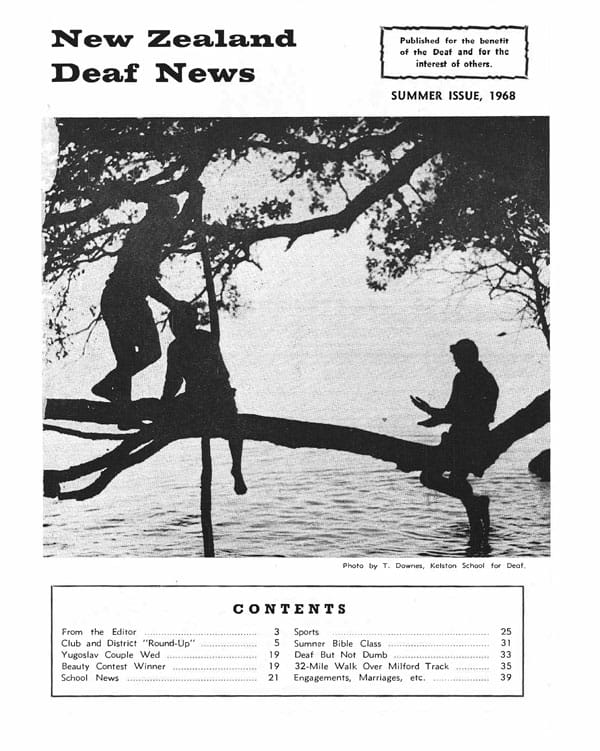
1968
publication – Taonga source: New Zealand Deaf News
NZ Deaf News: Summer 1968 (Vol. 5, No. 2)
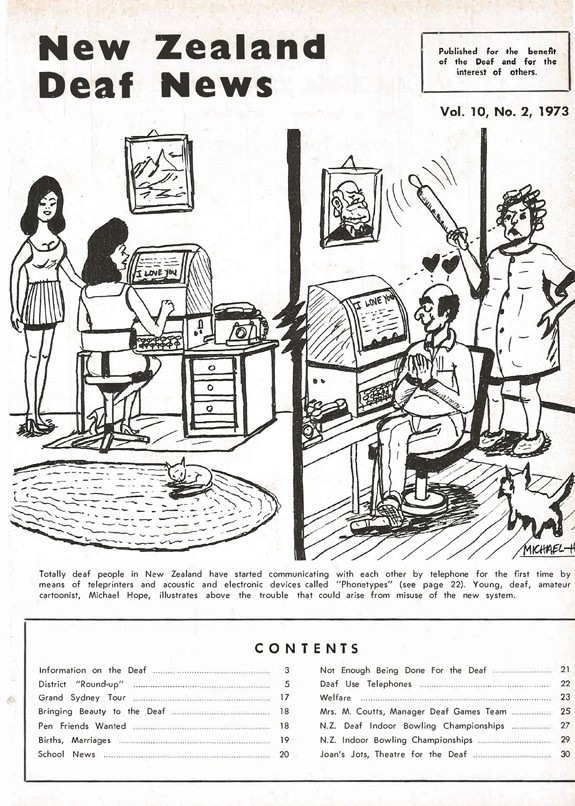
1973
publication – Taonga source: New Zealand Deaf News
NZ Deaf News: 1973 (Vol. 10, No. 2)
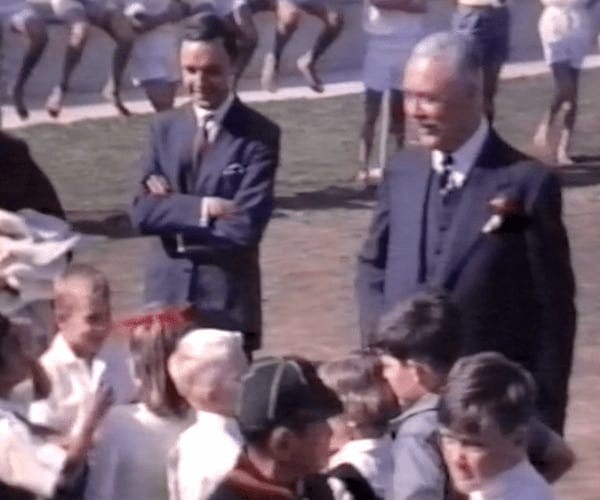
1964
video – Taonga source: Susan Hamilton
The Governor-General and his wife visits Kelston School for the Deaf
The Governor-General Sir Bernard and Lady Fergusson visited Kelston School for the Deaf on 4 April 1964. They were entertained by swimming and gymnastics display by its deaf pupils.

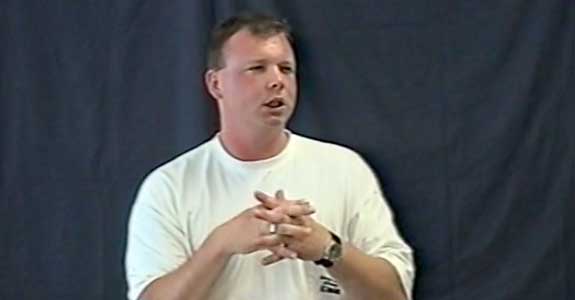
1997
video – Taonga source: AUT Visual Languages Section
Memories of Perry Strawson
Perry Strawson entertains with stories and funny tales from his life; what it’s like to enjoy sports and travel as a young Deaf man.


1993
video – Taonga source: Television New Zealand Archive
Spotlight on Pasifika Deaf
Tangata Pasifika visits Kelston Deaf Education Centre and meets with a number of Pasifika Deaf students part of the school’s transition programme, interviewing Rosie Amituanai and her family.


1959
video – Taonga source: Susan Hamilton
Sports Day at Kelston School for the Deaf
The School for Deaf annual sports day is held at Kelston with athletics, long jumping, relay races and performances.

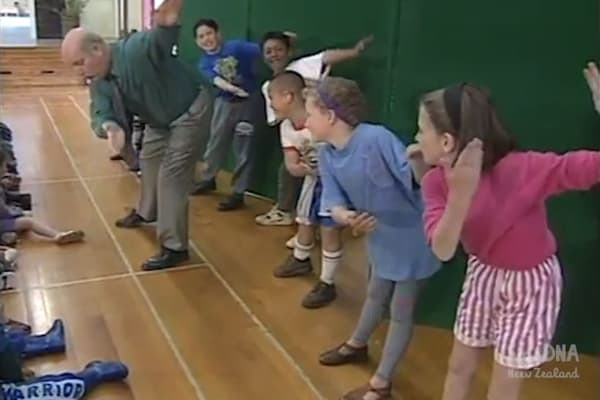
1995
video – Taonga source: Television New Zealand Archive
The inaugural Deaf Festival is hosted at Kelston Deaf Education Centre
Deaf children are taught drama skills by two Deaf visitors from the UK, in preparation for their show at the opening night of the inaugural Deaf Festival, hosted by Kelston Deaf Education Centre.

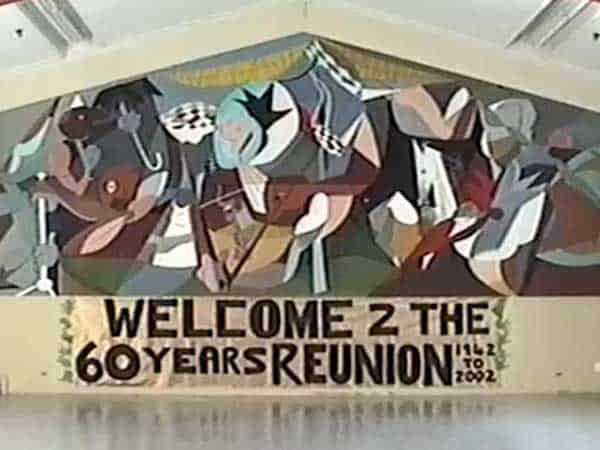
2002
video – Taonga source: Dorothy Jones
Auckland Schools for Deaf: 60th Reunion
Weekend celebrations are kickstarted with a Māori Deaf kapa haka group to perform a haka powhiri. Vintage teachers such as Les Bury briefly summarise their experiences of working in Deaf education over the years.
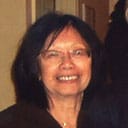
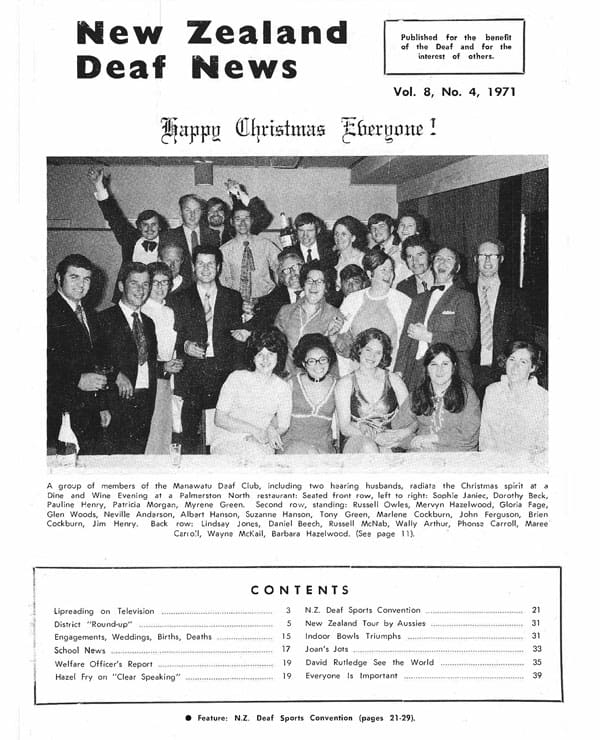
1971
publication – Taonga source: New Zealand Deaf News
NZ Deaf News: 1971 (Vol. 8, No. 4)
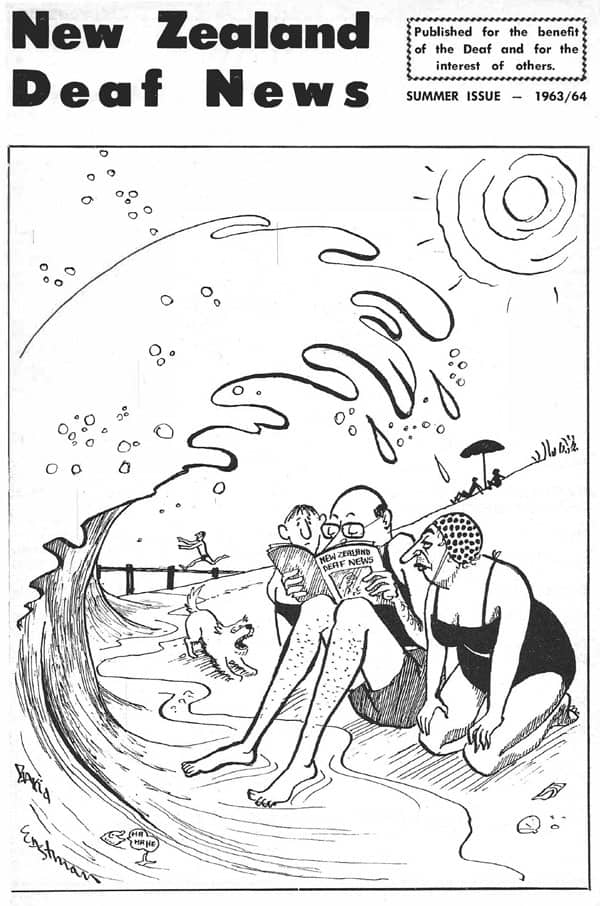
1963-64
publication – Taonga source: New Zealand Deaf News
NZ Deaf News: Summer 1963-64 (Vol. 1, No. 2)
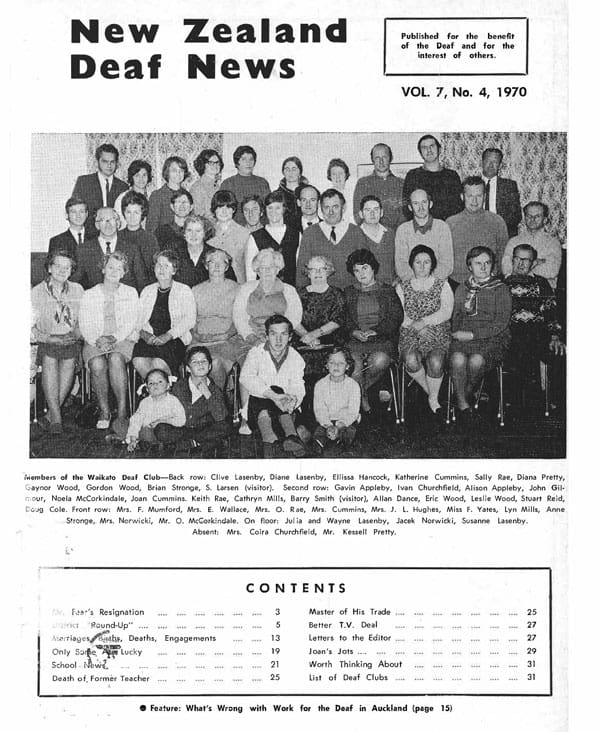
1970
publication – Taonga source: New Zealand Deaf News
NZ Deaf News: 1970 (Vol. 7, No. 4)
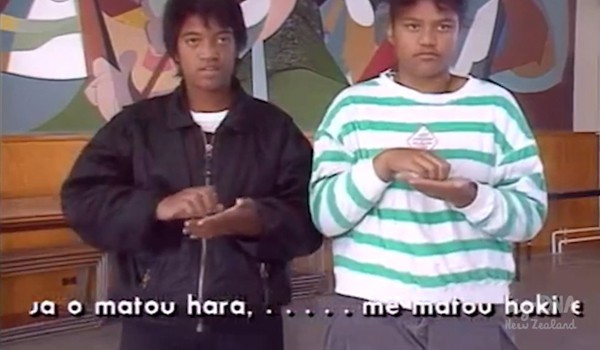
1991
video – Taonga source: Television New Zealand Archive
Two Deaf children sign a karakia
A karakia, the Lord’s Prayer, is given by two Deaf children using NZSL for the ‘Marae’ television series. This clip also contains Māori captions of the te reo Māori lyrics.

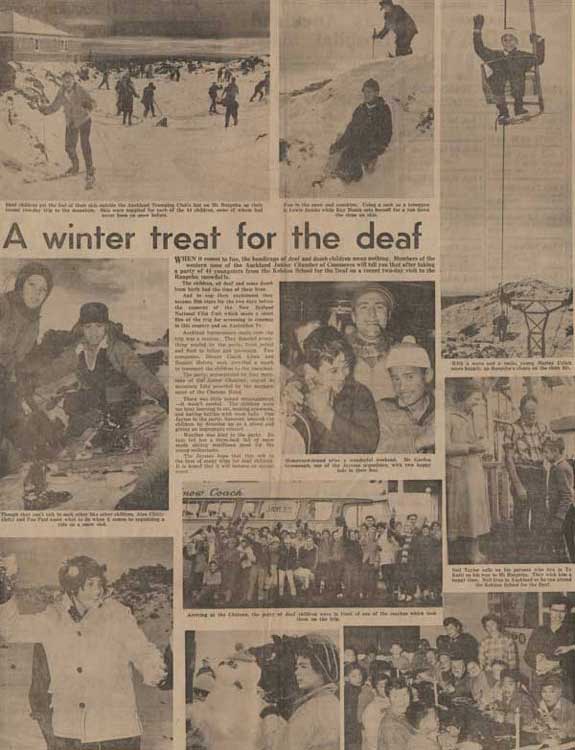
1960
article – Taonga source: The Auckland Star
A winter treat for the deaf
A group of 44 deaf youngsters from Kelston School for the Deaf take a two-day visit to the Ruapehu snowfields.
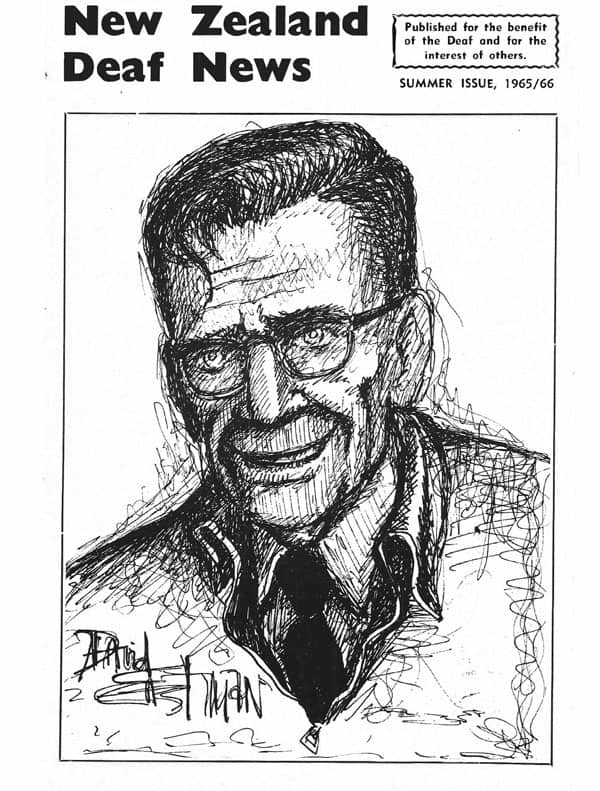
1965-66
publication – Taonga source: New Zealand Deaf News
NZ Deaf News: Summer 1965-66 (Vol. 3, No. 2)
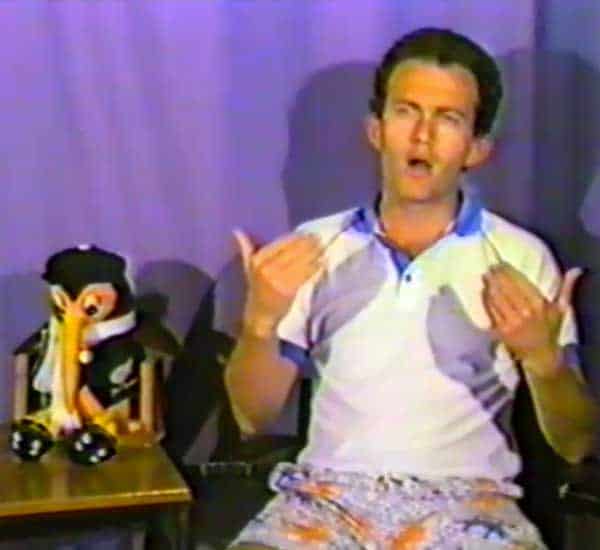
1986
video – Taonga source: Ngaire Doherty
A ‘Mime and Masks’ show by Deaf Drama Group: A Visit to Kiwiland
A Deaf Drama group perfoms 'A Visit to Kiwiland' at Kelston with supporting acts by the Sign Singers. The evening fundraised $766.00 towards the purchase of a TTY and to sponsor two pupils from Kelston to attend the World Deaf Games in Christchurch 1989.
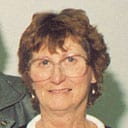
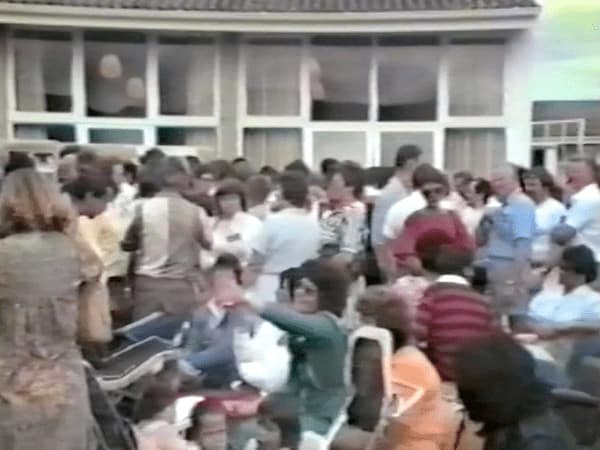
1984
video – Taonga source: Susan Hamilton
Auckland Schools for Deaf: 45th Reunion
Brief footage of the crowd at Kelston for its 45th reunion. The Auckland weather holds up for the outdoor festivities!

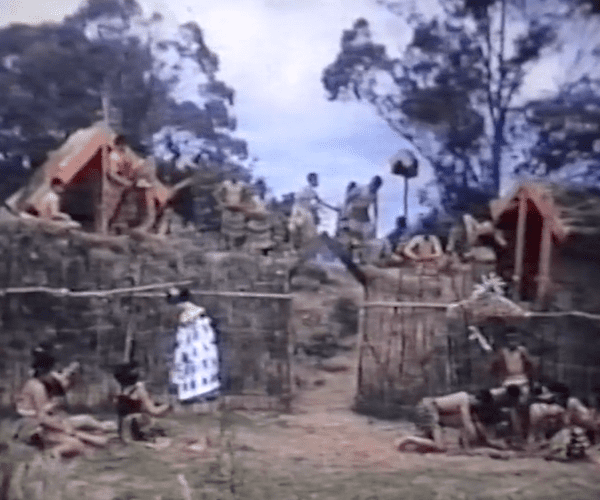
1959
video – Taonga source: Susan Hamilton
Extended version: Te Pakanga o Whau performs at the opening ceremony of Kelston
The opening of Kelston on a site in Archibald Road featured the infamous ‘Te Pakanga o Whau’ (The Battle of Whau) in 1959 where 86 deaf students acted in an outside play featuring a Māori-Pakeha battle near a big gum tree field.

